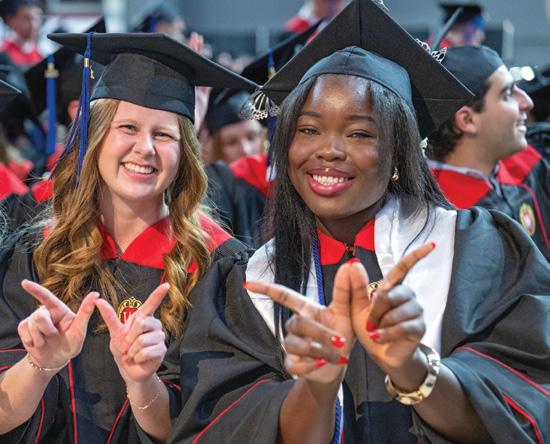
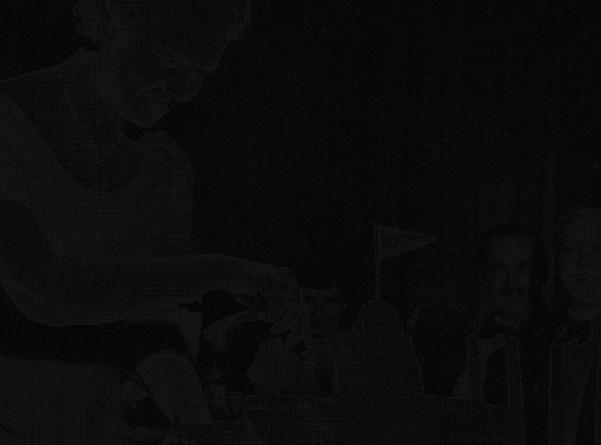

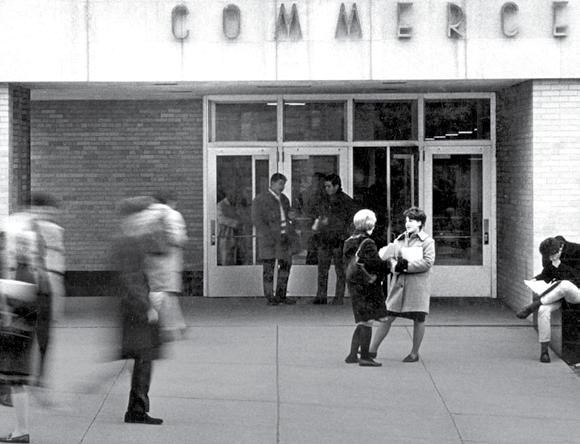
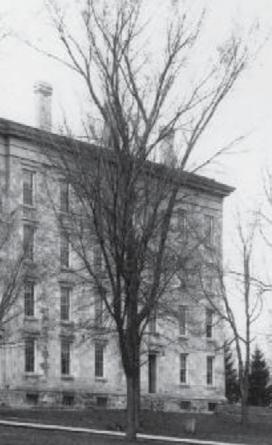



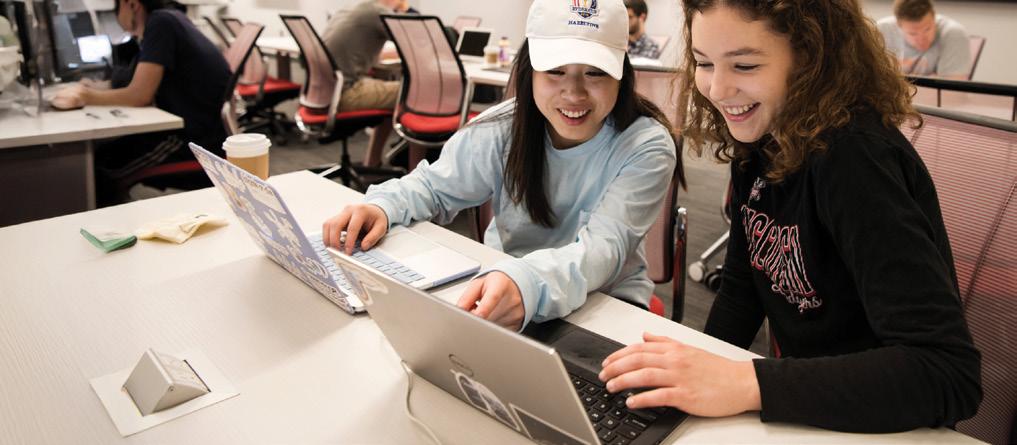




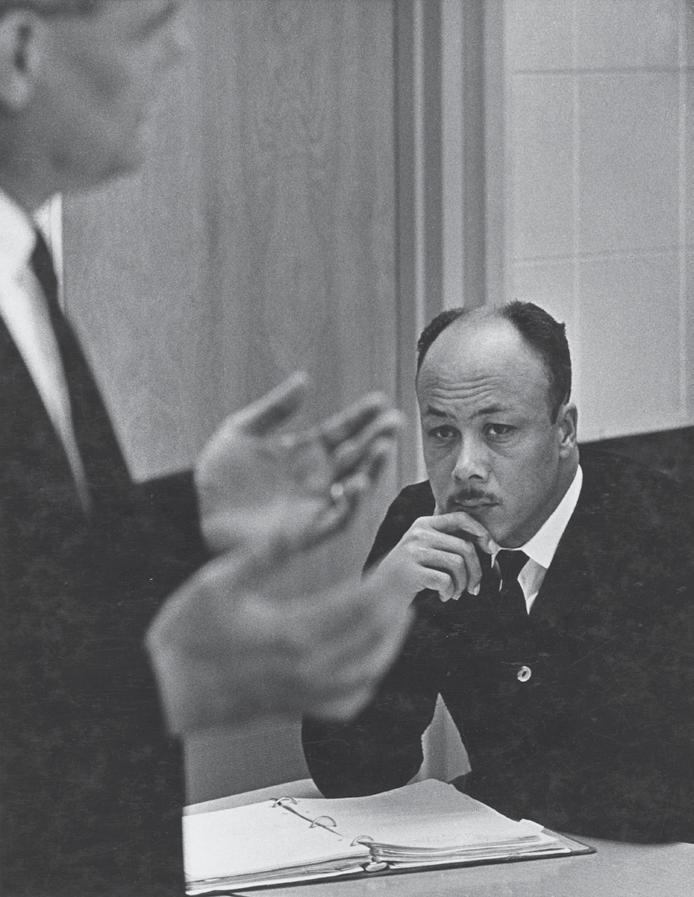





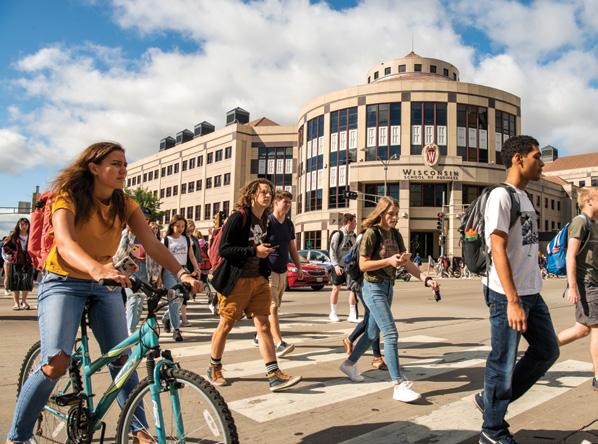
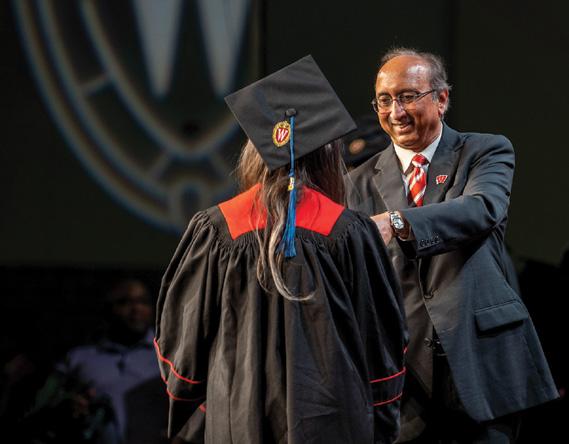
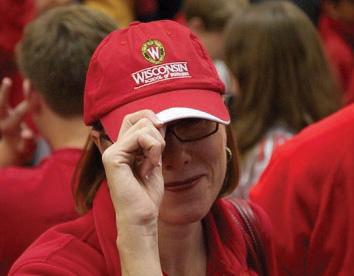

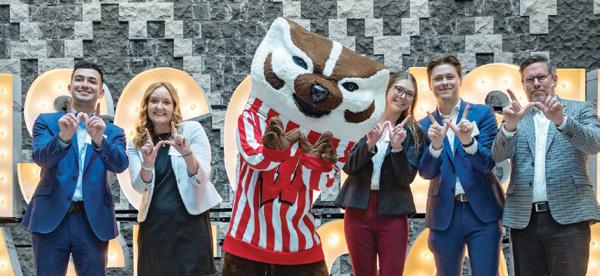


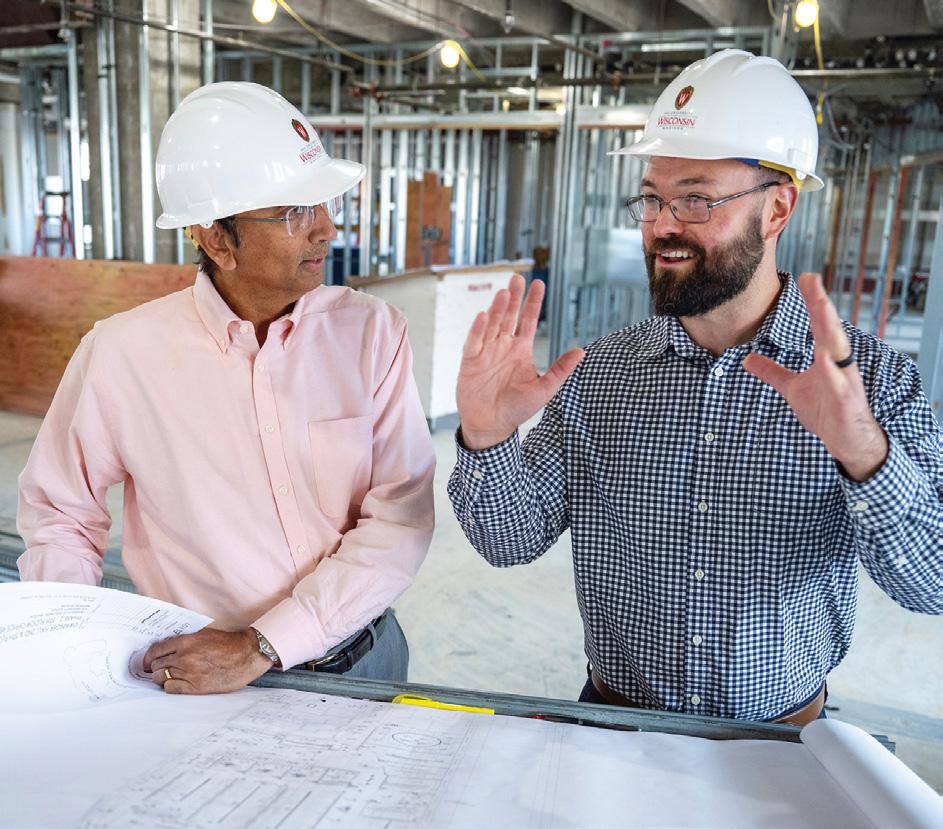
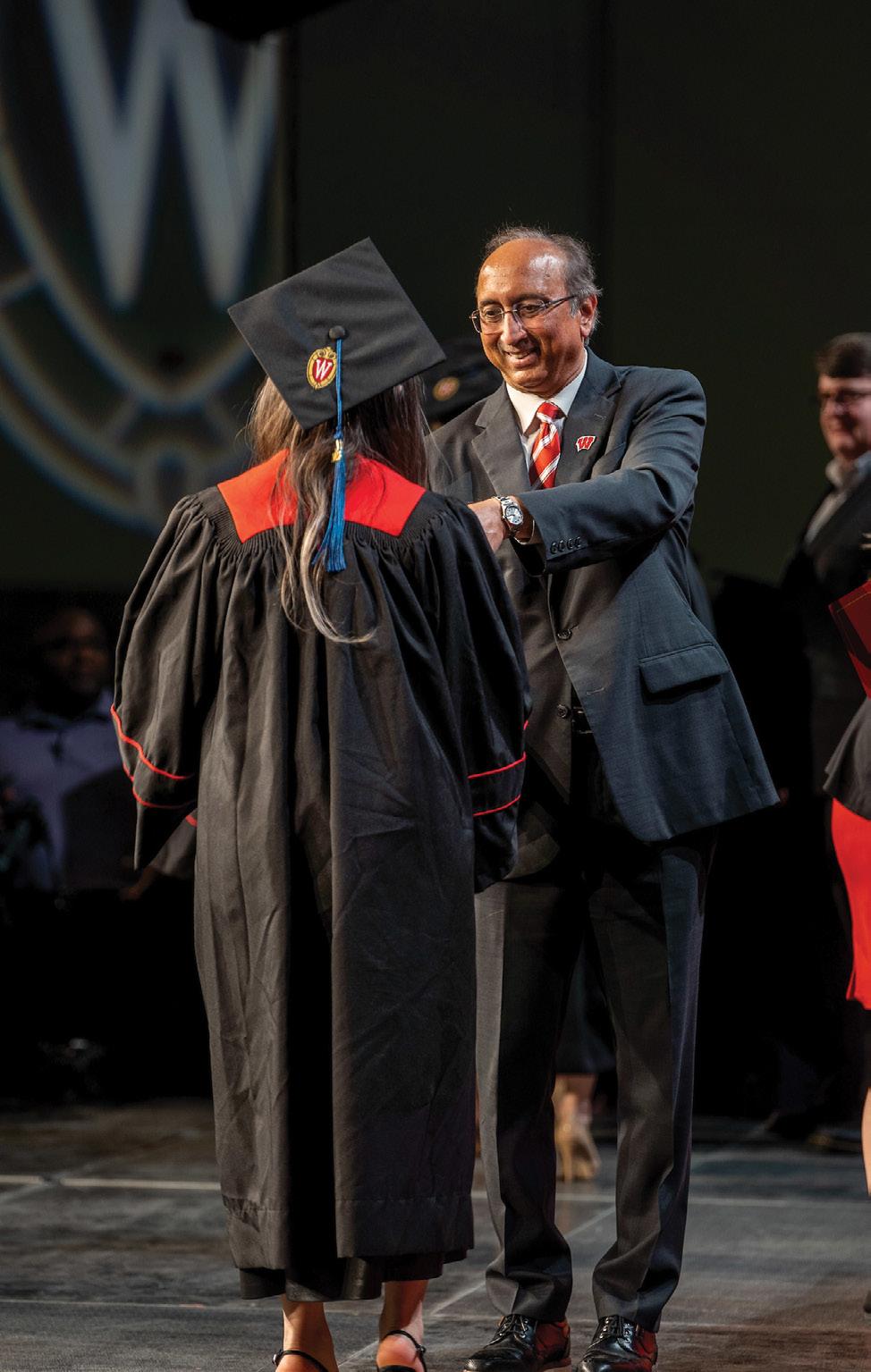































These four words don’t just represent the theme of the Wisconsin School of Business’ 125th anniversary celebration. They represent the foundational values—bold leadership, relentless innovation, and a commitment to community—that are part of our institutional DNA and have guided us for more than a century.
As WSB’s dean, I feel a great responsibility to uphold these core principles and ensure their continued relevance as we shape a future-forward strategy for the school to meet today’s challenges. While our values haven’t changed, business has, and so we must evolve to stay nimble and responsive.
Through new investments in entrepreneurship, inclusive leadership, experiential learning, and industry partnerships, our vision for WSB’s future is an innovative reimagining of what a business school can do. We’re embracing digital innovation and strategy to craft cutting-edge initiatives for today’s students while also expanding lifelong learning to support alumni at all career stages. It’s a vision that honors our longstanding values and scales them to new heights. Because even after 125 years, we continuously strive to remain one of the nation’s leading business schools.
WSB’s legacy in motion also comes to life in the pages of this special anniversary issue that highlights our past, present, and future. You’ll hear about unforgettable alums (p. 24) and significant firsts from WSB’s history (p. 16), dynamic investments in AI (p. 22), and an exciting, alumni-driven model for experiential learning (p. 14).
The spirit of innovation and leadership fostered at WSB connects us all. As we begin our next 125 years, how will the skills, mindsets, and knowledge you embody help us navigate and shape our future? The answer is yours to determine.
On, Wisconsin!

Vallabh “Samba” Sambamurthy
Albert O. Nicholas Dean Wisconsin School of Business
by Paul L. Newby II

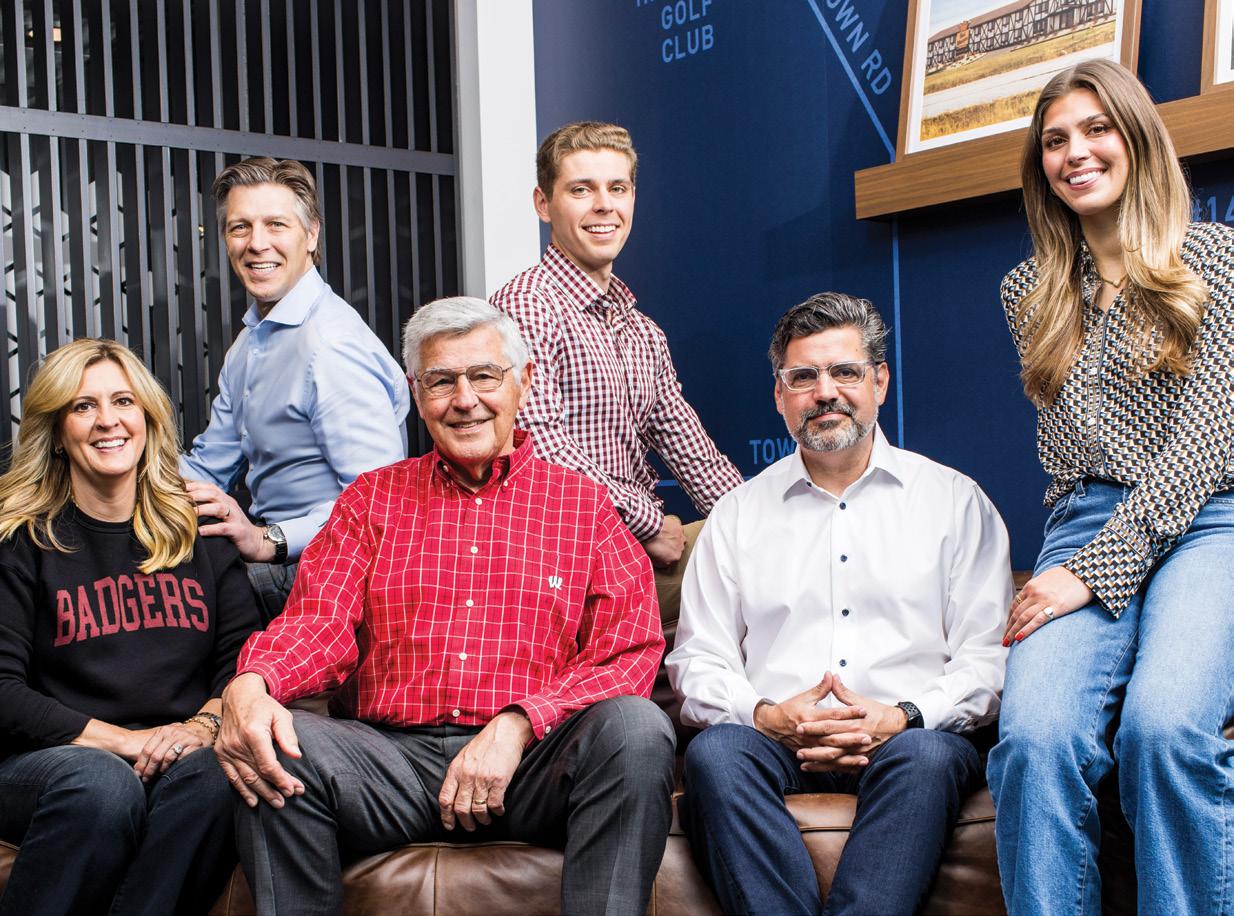

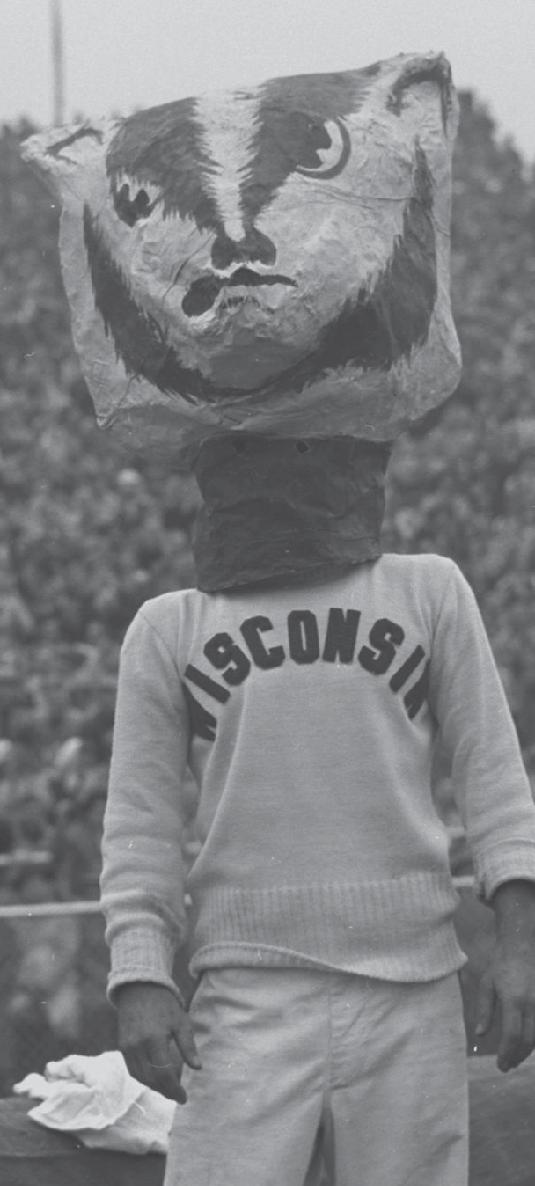

From the dawn of modern aviation to the invention of the zipper, the turn of the 20th century ushered in products, firms, and industries that would shape the world.
Amid this period of remarkable progress, the University of Wisconsin–Madison established its School of Commerce in 1900—dedicated to fueling the same spirit of transformation that defined the age. As one of the first business schools in the U.S., the program broke new ground, preparing students to lead in a rapidly changing economy. (Some things never change.)
For 125 years, the Wisconsin School of Business has continued to innovate, adapt, and shape the future of business education— alongside some impressive company.
Can you guess whether the following products and Wisconsin businesses debuted before or after the school’s founding in 1900?

FALL | WINTER 2025
|
EDITORIAL |
MANAGING
EDITOR
Erin Canty Ryan (BA ’07, MS ’09)
ASSISTANT EDITOR AND WRITER
Chris Malina
WRITERS
Clare Becker
Haley Boyer (BA ’20)
Meghan Franklin
| DESIGN & PHOTOGRAPHY |
ART DIRECTOR AND DESIGNER
Shaysa Sidebottom Cook
DESIGN INTERN
Cam Erhardt (BFA ’26)
PHOTOGRAPHERS
Narayan Mahon
Paul L. Newby II
Lexi Webster
University of Wisconsin
Digital Collections Center
| ADVISORS |
DIRECTOR OF ALUMNI RELATIONS
Betsy Lundgren (BA ’03, MA ’05)
EDITORIAL


Kaylene Christnovich (in memoriam)
Sirinda Pairin (BA ’15)
BRAND
Katie Schauer
© 2025 Board of Regents of the University of Wisconsin System
Update is published biannually. All rights reserved.
PUBLISHER
Wisconsin School of Business
Grainger Hall
975 University Avenue Madison, WI 53706
business.wisc.edu/update
University of Wisconsin–Madison is an equal opportunity and affirmative action educator and employer.
Photo by Paul L. Newby II
Presenting an interview with the building that’s been home to WSB for over 30 years

What makes you special?
Honestly, what doesn’t make me special?
Besides being one of the most recognizable buildings on UW–Madison’s campus, students dig my inspired learning spaces, including the recently expanded Learning Commons. The space combines state-of-the-art technology, active classrooms, quiet study spaces, and much more. It’s no wonder why it’s one of the most visited libraries on campus!
What do you enjoy most about being a building?
Over the years, I’ve hosted C-suite leaders, celebrities, and even aerial acrobats! (My ceiling beams are still aching from that one.) But what I like best is being the backdrop for the wins of everyday Business Badgers. I love seeing students ace their midterms, land summer internships, and later return as alumni. One couple even took wedding photos here last year!
Oh, and a few more things:
Grainger Hall
EST. 1993
Madison
What’s next for you?
Business keeps changing, and any building worth its bricks has to keep up. To keep Business Badgers competing at the highest level, my first floor is undergoing a major renovation. Expect modern study spaces, tech-forward classrooms, and vibrant community hubs perfect for watching a Badger game.
Grainger Hall broke ground on March 20, 1991, officially opened in Fall 1993, and debuted its east wing in 2008. | Older siblings: Sterling Hall and the Commerce Building. | Major benefactors include the late David W. Grainger (BS ’50) and Juli Plant Grainger (BPH ’48) | Big differentiator: WSB’s first-of-its-kind Multicultural Center builds community and fosters cultural fluency.
To read more, visit business.wisc.edu/news
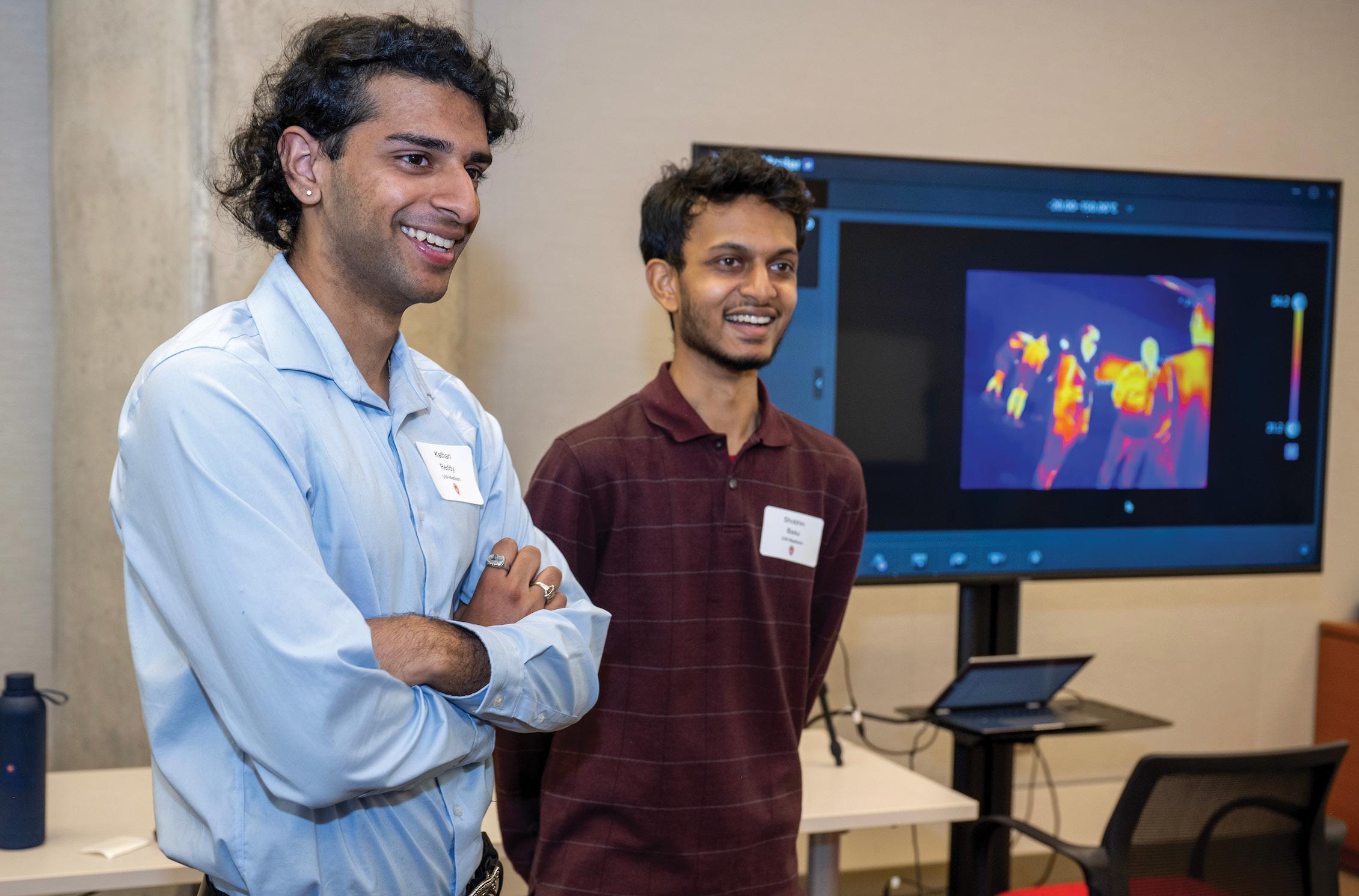
During an open house on April 24, students showcased their semester-long projects at UW–Madison’s Tech Exploration Lab. A collaboration between the Wisconsin School of Business and the Wisconsin Institute for Discovery, the lab allows students to tackle real-world problems with AI, augmented reality, and other emerging tech.
Student teams from some of the nation’s top undergraduate business schools showcased their consulting skills in April at the inaugural Wisconsin Invitational Consulting Case Competition. Hosted at Grainger Hall, 18 teams from nine schools competed in front of a panel of judges— with a team from WSB taking home the top prize! Competitors also built valuable connections with top consulting employers such as Accenture and Bain
& Company, and benefited from case interview and recruiting preparation.
“An event like this gives employers exposure not just to Business Badgers but also to students from other top schools across the country,” says Melissa Leffin (BBA ’09), executive director of career, employer, and pathway engagement for WSB’s undergraduate program office. “Our hope is that this leads to more formalized relationships with top consulting firms.”
The Wisconsin School of Business welcomed 12 new faculty this fall, bringing research expertise and teaching excellence in their respective fields.
By academic departments, the new faculty include:
Accounting and Information Systems
Christian Peters
Finance, Investment, and Banking
Scott Baker
Zhongtian Chen
Will Diamond
Management and Human Resources
Jong Sig Chung
Michael Kardas
Jingya You
Marketing
Kyeongbin Kim
Operations and Information
Management
Yu Ma
Real Estate and Urban Land Economics
Abdollah Farhoodi
Risk and Insurance
Ben Collier
Kyohei Okumura
On December 5, Business Badgers and friends from every corner of the world are invited to celebrate WSB’s 125th anniversary during a special global toast. Visit go.wisc.edu/wsbglobal-toast to find an event near you, or raise a glass from home. Wherever you participate, join in and celebrate your alma mater’s quasquicentennial. After the event, share your toast on social media using the hashtag #WSB125 and tagging WSB.

The Wisconsin School of Business is pleased to recognize six outstanding alumni with awards honoring their talent, service, and ongoing commitment to the Badger community.
2025 recipients
Distinguished Business Alumni Award
The Bascom Group:
Derek Chen (MBA, MS ’91), Jerry Fink (BS ’87, MBA ’90), and David Kim (BBA ’89)
Karen Monfre (BBA ’86)
WSB Impact Award
Will Hsu (BBA ’00)
WSB BOLD Award
Ousmane Kabré (BBA ’15, MAcc ’16)
This fall, the familiar sounds of bustling lectures and lively student conversations at Grainger Hall will be joined by the steady hum of construction. This substantial transformation, known as Badger Blueprint, is a bold reimagining designed to ensure WSB’s home since 1993 continues to be a thriving hub for innovation, student connection, and academic success.
The project will transform 31,000 square feet of space into tech-forward classrooms, collaborative learning areas, and vibrant community hubs. Following the opening of new study areas, classrooms, and employee workspaces last spring, work on the building’s first floor commences this fall. These new spaces are being designed to prioritize learning, gathering, and collaboration. Once complete, the modernized first floor will house several new spaces, including:
High Kicks Café, made possible by the family of Chris and Suzy (Oldorf) DeWolf (BS ’94), a coffee shop and gathering place for students and the larger campus community.
Mansukhani Family Atrium (the M), funded by Roger Mansukhani (BA ’89), which extends the building into the courtyard to increase gathering and lounge spaces.
The Gerald D. and Helen M. Stephens Foundation Atrium and Stephens Family Auditorium, in honor of the late Gerald Stephens (BBA ’55) and his wife, offer flexible room configurations for banquets, conferences, and lectures.
Thanks to the contributions of generous donors, over $20 million in private donations was raised to fund the extensive renovation. With these extraordinary upgrades, Grainger Hall will set a new standard for student-driven design and enhance WSB’s role in the broader campus community. ◀


BY MEGHAN FRANKLIN

If the Wisconsin Naming Partnership was a person, it would celebrate its 18th birthday this year. The fact that it’s not a person, however, is where its magic lies.
Continued on next page
In October 2007, a group of 13 Wisconsin School of Business supporters announced an unprecedented gift. Joining together to form the Wisconsin Naming Partnership, they gave $85 million to preserve the name of the Wisconsin School of Business for 20 years— bucking the trend where a single donor gives a hefty sum in exchange for naming a school in perpetuity.
The announcement of the Wisconsin Naming Gift quickly generated media buzz. Covered by media outlets like The New York
Times and Bloomberg Businessweek, some attributed the no-name gift to “Midwest nice.” Maybe that was part of it, yet it was also incredibly strategic.
When Michael Knetter came on board as dean in 2002, the school needed the resources that typically come with naming a school for a single major donor. Knetter thought there had to be a better way.
“We were teaching about the value of keeping your options open, brand equity, and the power of strong
teams over individuals. A conventional naming gift violated all three of those principles,” Knetter says.
“The Wisconsin Naming Partnership secured the resources needed and recognized people who really cared about the school in an elegant way. It created more esprit de corps among our donors than anything else we could have done.”
It was partly that spirit that led John Oros (BBA ’71), operating partner at J.C. Flowers & Co., to sign on as a naming partner, despite thinking that raising more than $50 million in $5 million increments was highly implausible.
“At the time, pledging $5 million was a reach for me. I made that reach because I wanted to be part of a group that was doing something unique,” Oros says.
It was—and is—something unique: A gift to preserve the namelessness of a business school has yet to be repeated.
Like Oros, Signe Ostby (BBA ’75, MBA ’77), a hightech marketing leader and co-founder of Valhalla Foundation, thought a naming partnership faced tough odds. She also thought it was a great idea.
“There are very few people whose names go down in history. Once you get one generation past a person’s success, it’s largely forgotten. Many of the naming partners felt that we wanted to strengthen the affinity WSB alumni had for the school, not
for an individual’s name,” she says.
Taking WSB to new heights
Since the Wisconsin Naming Gift was bestowed, three additional supporters joined the partnership, growing the gift principal to $105 million. Today, with interest, the total value of the gift is more than $130 million.
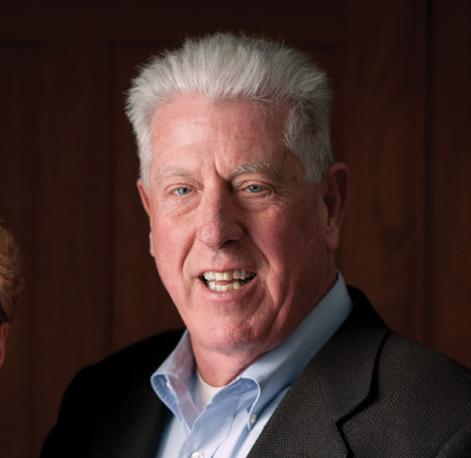
“I made that reach because I wanted to be part of a group that was doing something unique.”
JOHN OROS (BBA ’71)
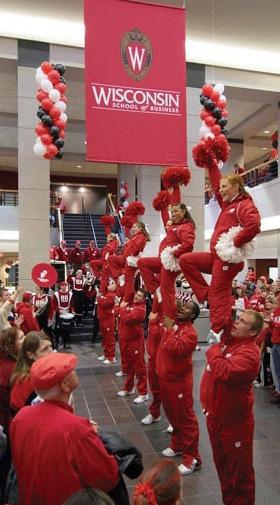
Even more impressive than the gift’s growth, however, is the value it has brought to WSB. The gift has helped enrich the student experience, accelerate program growth and innovation, and retain and recruit world-class faculty.
“Faculty excellence is the bedrock of institutional excellence,” says Vallabh “Samba” Sambamurthy, WSB’s Albert O. Nicholas Dean. “Our faculty have not only continued to build the research reputation of WSB, but have also helped launch new, innovative programs that transformed the school into a comprehensive business school.”
Today, there are 102 WSB faculty, which reflects targeted growth across the breadth of the school. In the last five years, WSB has added 43 faculty.
Those faculty have positioned themselves—and


the school—as thought leaders, appearing over 1,000 times in publications like The Wall Street Journal, Harvard Business Review, and Forbes in the last year alone.
WSB has also created new programs in response to student and market needs. The professional MBA; specialized master’s degrees in business analytics, real estate, and supply chain management; and an undergraduate consulting certificate are all examples of how the school is preparing the next generation of business leaders.
Notably, WSB graduate school enrollment has increased more than 60%, and undergraduate enrollment has more than doubled.
An admired approach Thinking back to the buzz when the gift was announced, Oros says he remembers a
During the 2007 Homecoming Bash, a crowd of over 1,000 alumni, friends, and members of the Business Badger community gather to hear WSB Dean Mike Knetter (above) announce the Wisconsin Naming Gift, alongside fellow naming partners and UW–Madison Madison Chancellor John Wiley (MS ’65, PhD ’68).
call from a friend working in fundraising at Stanford University at the time.
“He said, ‘John, we read about your gift and want to thank you. This is a spiritually uplifting gift.’ It would be nice to see it done again,” Oros says.
As for Ostby, she hopes the lasting impact of the gift inspires a whole new generation of naming partners to step up.
“Part of the beauty of the partnership is that you can have a major impact on the future of the school at a fraction of the cost it would be to name the school after yourself,” Ostby says.
“I can’t thank the Wisconsin Naming Partners enough,” Knetter says. “Their gift changed the school in a big way.” ◀
Paul Leff
Sheldon B. Lubar
John Morgridge
Albert O. Nicholas*
John Oros
H. Signe Ostby
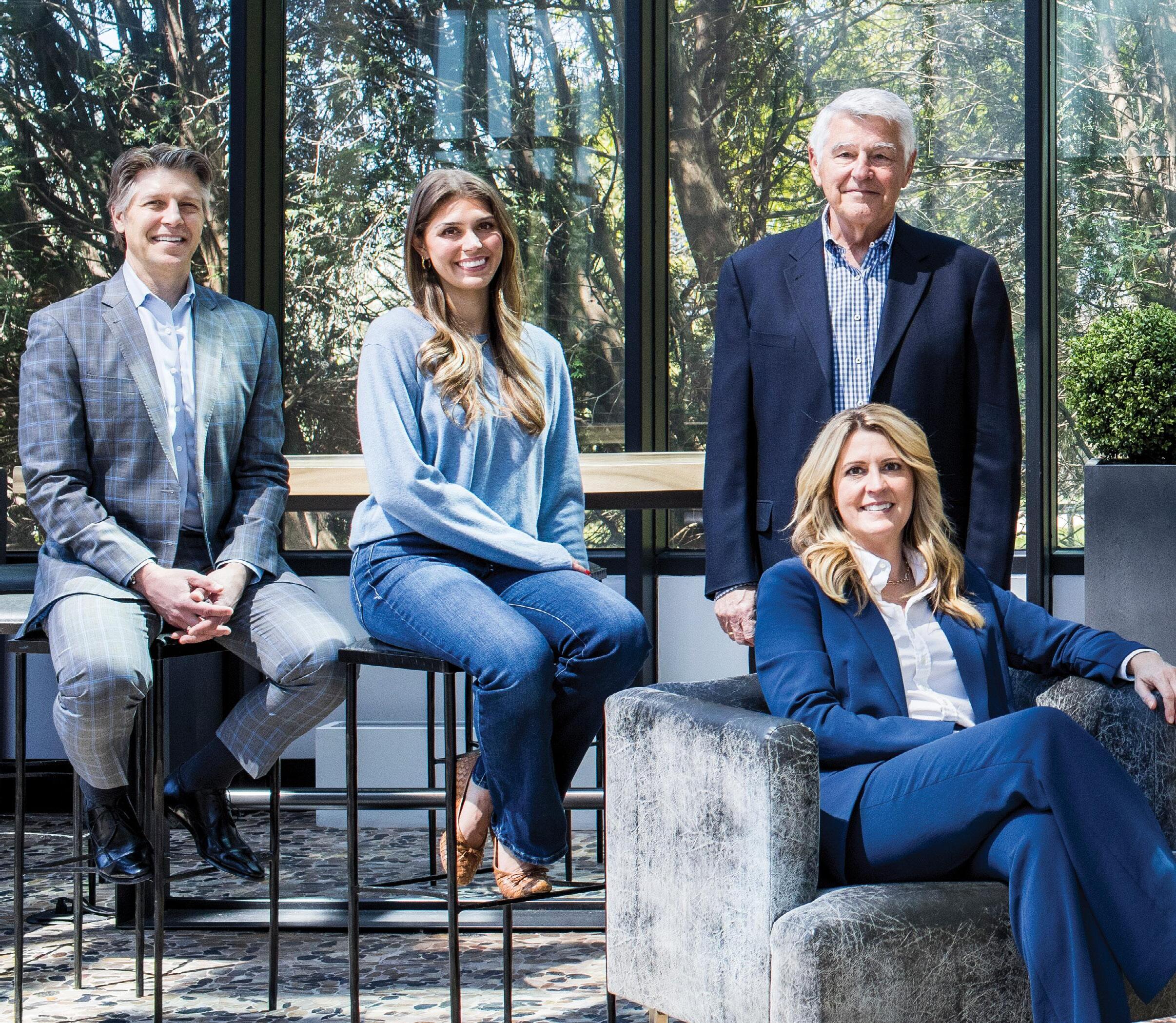

Introducing a multigenerational Business Badger
family with Wisconsin roots
BY CHRIS MALINA | PHOTOS BY NARAYAN MAHON

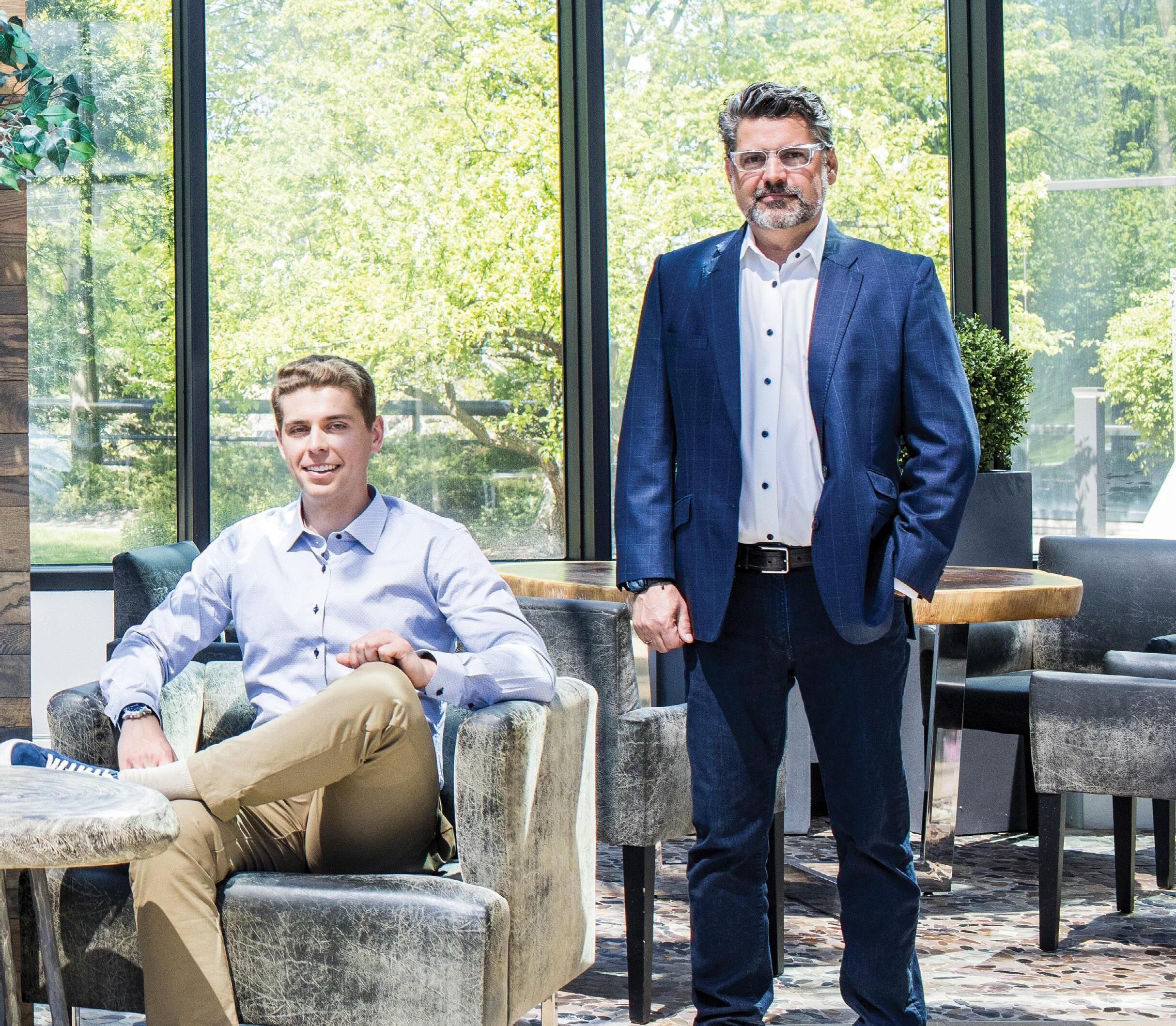
Three generations. Six Business Badgers. One amazing story.
Meet a unique cohort of Wisconsin School of Business graduates, all from the same family. The multigenerational group includes Dave Lenz (BBA ’73); son Jeff Lenz (MS ’97), daughter Kim Lenz Richter (BBA ’93), and son-in-law Barry Richter (BBA ’01); and two of Kim and Barry’s kids, Blake Richter (BBA ’20, MS ’21) and Alexandra Richter (BBA ’23).
Like any good Wisconsin family, you’ll find them taking trips up north or gathering to cheer on the Badgers—but they also do business together. Four out of the six work for the family company, NCG Hospitality, whose portfolio began with a single motel and now includes more than 30 hotel and restaurant properties across the U.S.
With founder Dave serving as board chair, Jeff as CEO, Kim as vice president of community and investor relations,
and Blake as development project manager, the 45-yearold company continues to grow and win local and national accolades for workplace culture and satisfaction.
Perhaps the company’s success can be explained by the fact that its core values—growth, fun, trust, and responsibility—are the same values that the family personally embodies, and which cement their bond outside of the demands of work and business.
“We’re low drama,” says Jeff. “We all get along. Nobody puts on airs. Nobody needs to one up anyone and we can just enjoy the time together.”
Taken as a whole, it’s a story made possible by strong business educations—and even stronger family ties.
Continued on next page
For Dave, hotels have often quite literally been home.
Growing up in Tomah, Wisconsin, Dave’s house was attached to the motel his family owned, meaning he and his five siblings were frequently tasked with making beds, emptying ice buckets, and assisting guests. This early exposure to real estate put him on the path to study business at UW–Madison—though arriving on campus in 1967 came as a shock to the system.
“There were tense protests and demonstrations happening in front of the Commerce Building against Dow Chemical, which manufactured napalm for use in the Vietnam War,” says Dave, who escaped the turbulence after his sophomore year. He paused his studies, enlisting in the 115th Fighter Wing of the Wisconsin Air National Guard, and married his wife, Kris. The couple later welcomed three children: Kim, Jeff, and Katie.
After his training concluded, Dave returned to WSB as a junior and majored in finance and real estate. He then launched his career in commercial loans before striking a deal to build a motel of his own, which would lay the foundation for larger development projects—including one of the very first Hampton Inns—and the official founding of NCG in 1981.
When it came time to start exploring colleges, Kim remembers the subtle persuasion she received from her dad.
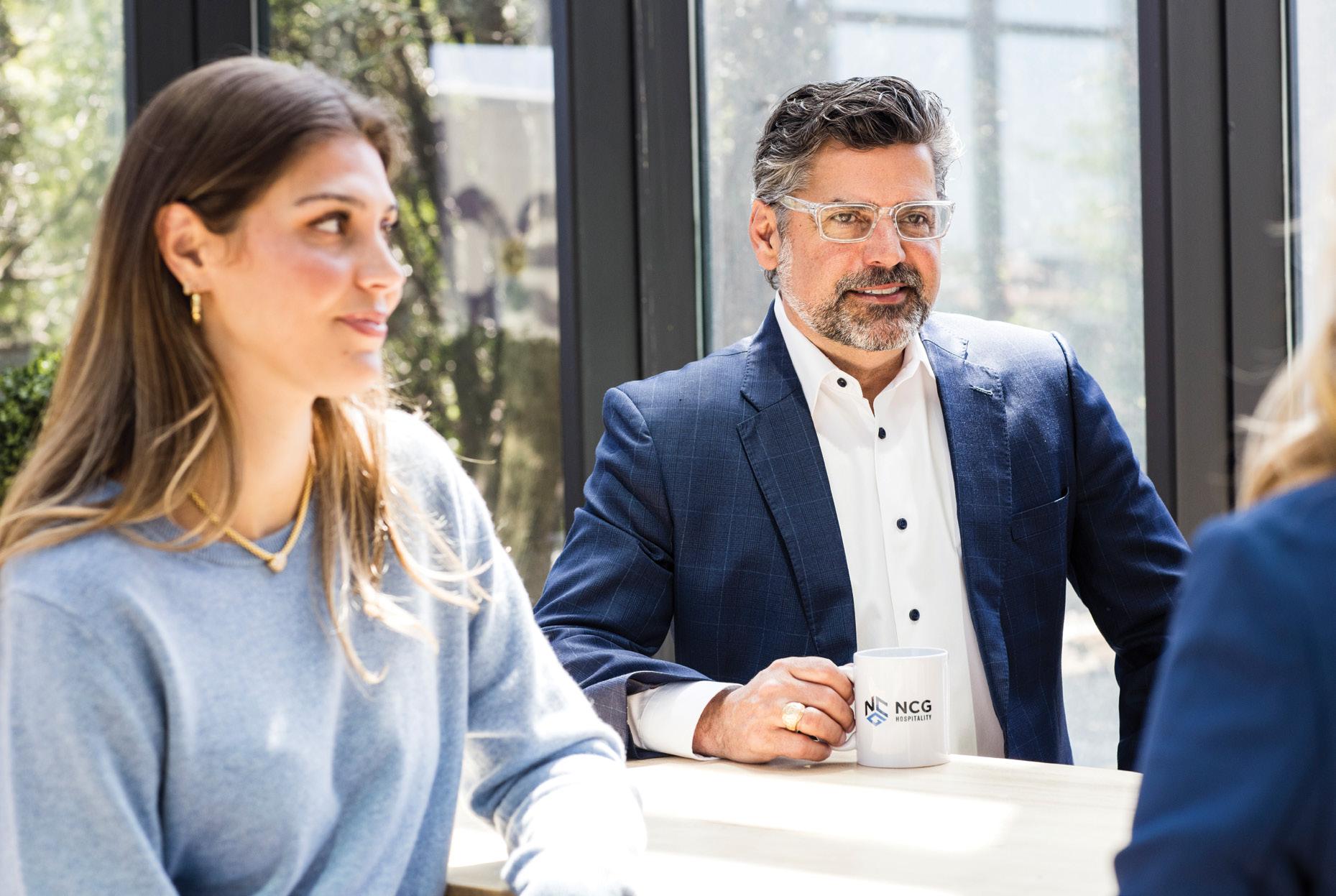
“He used to drive us along Observatory Drive and give this pitch about why Wisconsin was so great,” says Kim, who ultimately decided on her terms that UW–Madison was the place.
Meanwhile, her siblings chased sports dreams. Her sister Katie—who now works at NCG as VP of branding and communication—was recruited to play basketball at Cornell University, while her brother Jeff was recruited by the University of New Hampshire to play hockey, where he also earned a business degree.
Seeking to build upon that foundation after graduation, Jeff found a perfect match with WSB’s master’s in real estate and urban land economics, which paved the way for early career success: experience that was critical when he joined the family business, where he ultimately worked his way up to the CEO role.
“We’re most proud of the harmony that we have within our family.”
DAVE LENZ (BBA ’73)
Kim, meanwhile, majored in marketing and real estate at WSB, rocked her final semester in the brand-new Grainger Hall, and shared notes with a cute classmate and fellow business student, Barry Richter, who had been recruited to play hockey for the Badgers.
“If I was going to attend Wisconsin as a student athlete, I wanted to get a meaningful degree,” says
Barry, the son of former UW–Madison athletic director
Pat Richter (BA ’64, JD ’71). “I wanted to find a path into business and ultimately gravitated toward marketing.” Before long, Kim and Barry tied the knot and embarked on an adventure that took them around the world, thanks to Barry’s professional hockey career, before settling down in Madison. There, Kim joined NCG, Barry launched a new career in insurance, and together they focused on raising a family of their own.
Third generation
“For me, it was always Wisconsin or bust,” says Blake about his decision to continue the family’s Badger lineage. With an interest in his family’s work, he studied finance and real estate at WSB, then built upon his expertise by earning a master’s in real estate, tackling two of the advanced degree’s tracks: private equity investment and applied real

estate investment.
His early career took him to two investment firms, but Blake’s interest in making NCG a three-generation family business soon won out. “I always wanted to work with my grandpa,” he says. “Being able to do that, it’s special. I wanted to make a point of coming home and having that experience.”
Alexandra agrees that UW–Madison was the school for her but went in a slightly different direction after being accepted into WSB. “I wanted to do my own thing,” she says, and took a page out of her parents’ book by declaring a marketing major. “Understanding consumers and figuring out the right mix of communication and products really interested me.”
At WSB, she honed her skills through student organizations, like Badger Business Professionals and
the MKT Honorary Marketing Society, and landed an internship at an advertising agency—an experience that paved the way for her current role as an account manager at Publicis Group in Chicago.
All together now
Despite having graduated across four separate decades, a few shared themes emerge when the family reflects on their experiences at WSB— including feeling the pain of classes like business law.
“There was no chance I was getting a B in that class,” says Barry with a laugh, a statement that garners more
than a few knowing nods from fellow family members.
But, more than the demanding classes and all-night study sessions, the family remembers the positive things that have become WSB trademarks over the years, like the camaraderie between students, experiential learning opportunities, and passion of the professors—including James A. Graaskamp (PhD ’65), the legendary professor who came to define WSB’s real estate program.
“He was a great mentor,” says Dave. “You could always go to his office after class
and ask him a question about anything you were having a problem with. He’d take the time to make sure you understood.”
While each family member credits the school in their own unique way, all share an immense fondness for their years at WSB. Or, in Kim’s words: “Great memories and great friendships. I loved it all.”
Even with all the reminiscing about the past, the family is clear that their relationship with WSB isn’t over. In fact, they’re only ramping it up as alumni.
The family frequently lends their time and talent to WSB, the Wisconsin Real Estate Alumni Association, and the Wisconsin Family Business Center. They’ve hosted property tours for real estate students, served as guest speakers, and provided case studies to use in classes—and have no plans on slowing down.
For the Lenz and Richter families, there’s plenty to be proud of, including a successful company, exciting careers, and a lasting relationship with their alma mater. But there’s one thing that stands above everything else: an unbreakable bond that goes well beyond business.
“We’re most proud of the harmony that we have within our family,” says Dave. “I don’t think you could duplicate this.” ◀
More than a few honorary members have joined the family’s ranks since 2002. That’s when the Lenz Family Scholarship in Real Estate was established, which provides support to graduate students earning a master’s in real estate at WSB.
“I felt we should give back in terms of supporting Wisconsin kids that wanted to go through the Graaskamp program and helping them with tuition,” says Dave. The scholarship has supported more than 20 students since launching.

Thoughtful partnerships, including one with WSB, drive success at Happi Co.
BY CHRIS MALINA PHOTOS BY LEXI WEBSTER
Little did Sam Rockwell (BBA ’10) know that standing in line for a waffle at the base of a busy ski slope would not only change his life, but also the lives of his two closest friends: Justin Samuels (BBA ’10) and Jeremy Reich (BBA ’10).
These days, the trio—all New Jersey natives who met in the residence halls at UW–Madison and studied together at the Wisconsin School of Business—are the
creative force behind Happi Co. The multimillion-dollar CPG company is rapidly disrupting the frozen foods aisle through diverse brands, exciting flavors, and big-name partnerships with icons such as Snoop Dogg.
It’s the realization of a dream that began 15 years ago, when the three students first put their entrepreneurial skills to the test, slinging freshly made waffles at Madison’s Mifflin Street Block Party.
“We share similar work ethics and values, but also a desire to build,” says Reich, who’s served as the company’s chief strategy officer since 2022. “I think that’s why we work so well together and why we became such close friends.”
Seeking to create something with “a floor and not a ceiling,” Rockwell first approached his friends with the idea for a business inspired by busy, seasonal waffle stands. With
few resources but plenty of energy, the three got to work, with Samuels developing recipes and making waffles, Rockwell selling them, and Reich serving as an external advisor.
“The reason we’re still here today after 15 years is because we have complementary skills,” says Rockwell, the company’s chief executive officer. “We’re also committed to a shared goal, which has sustained us through the tough times.”
After graduating from WSB, Rockwell and Samuels continued to build up the business—then called Waffle Waffle—while Reich went on to earn an MBA and law degree at Rutgers University. After their initial idea for a brick-and-mortar store proved too costly, Rockwell and Samuels began exploring other ways to get their products in front of hungry customers, including supplying them to restaurants.
Through some dogged persistence, the team soon landed deals to get frozen versions of their waffles in stores, including Whole Foods and eventually Walmart. That reach, plus rising consumer demand for

novel food items, gradually allowed the company to morph into Happi Co. and expand their scope of products.
“We started making these breakfast sandwiches and figuring out how to source materials and build fullsolution meals,” says Rockwell.
“Once we were successful in the execution of that, we realized we didn’t need to limit ourselves to just waffles.”
Through partnerships with other producers, products like frozen entrees, bagged meals, and pizzas soon followed. Brands like Happi Foodi and Laughing Tiger were developed, and in 2023, the company created and launched Dr. Bombay ice cream, in partnership with Snoop Dogg.
“Partnering with manufacturers who have specialized abilities allows us to be nimble and move quickly,” says Samuels, Happi Co.’s chief operating officer.
“We let people who are experts do what they do and that’s what has allowed us to adapt.”
Now, the trio has signed on to another important partnership: one with WSB. In 2024, Happi Co. became one of WSB’s first corporate
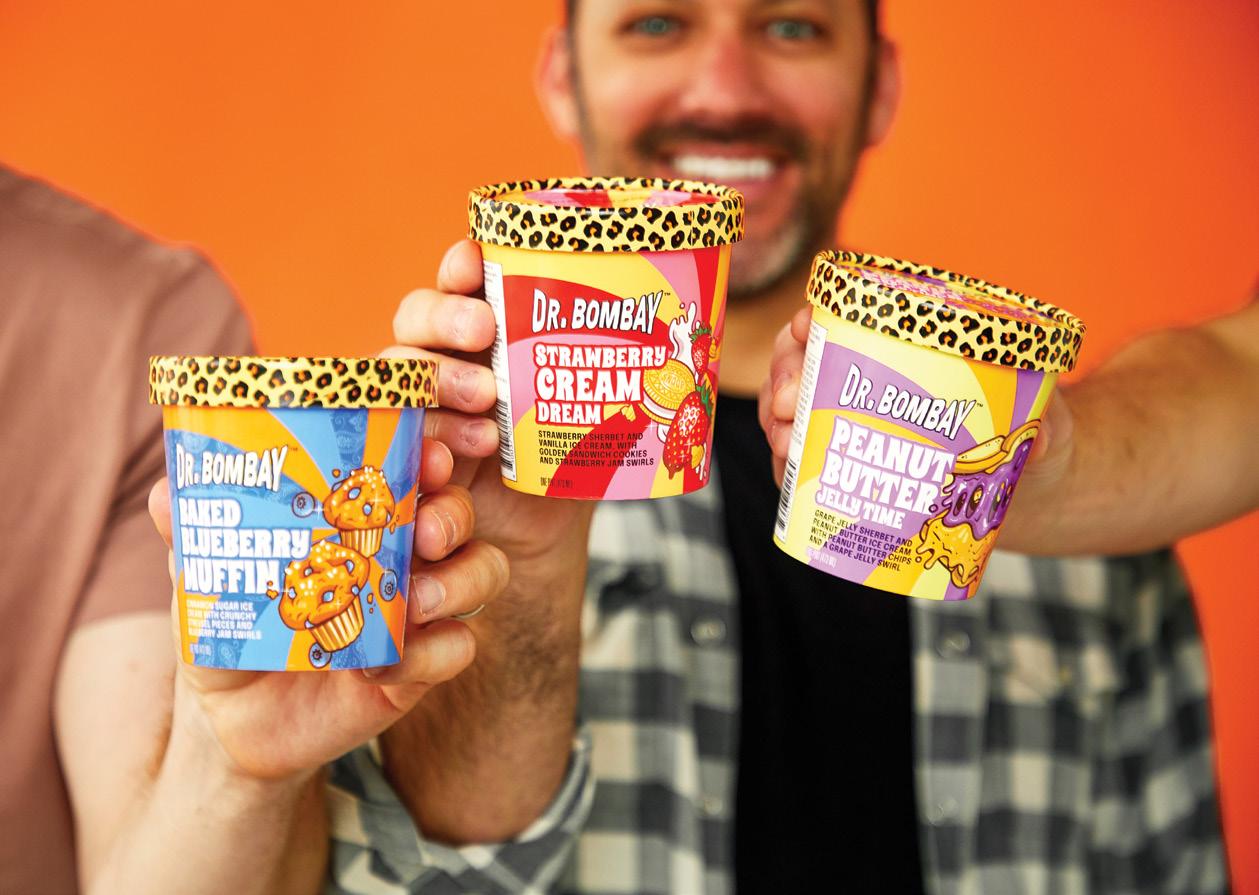
partners to participate in the school’s new capstone course, General Business 400. Designed to amplify WSB’s commitment to experiential learning, the class—which is required for all undergrads—connects multidisciplinary student teams with businesses to solve real-world challenges.
“We wanted to help develop something that’s enriching, that’s practical, that shows students how those lessons in the textbook are actually put into practice,” says Rockwell. “But the goal wasn’t just to give back. The goal was also to get by having students create a scope of work that is helpful to us. That really makes it mutually rewarding.”
“We wanted to help develop something … that shows students how those lessons in the textbook are actually put into practice.”
SAM ROCKWELL (BBA ’10)
The three are also partnering with WSB’s Weinert Center for Entrepreneurship on a reverse pitch competition to engage students in entrepreneurial thinking and problem-solving. In addition to lending their expertise and perspective, they’re eager to validate aspiring entrepreneurs and encourage their creativity.
“As students, anyone in the business school who discovered what we were doing responded with 100% positivity and encouragement,” says Samuels. “If we can do something similar for someone sitting in those same seats we once sat in, we’re going to do that.”
Rockwell, Samuels, and Reich agree their emerging partnership with WSB is a natural one. After all, the values that Happi Co. looks for in the business partners that have helped them grow— like trust, integrity, and grit— are also key values of WSB.
“We all find this partnership to be incredibly valuable and a total win-win,” says Reich. “Plus, any excuse to get back to Madison works for us.” ◀
PHOTO BY PAUL L. NEWBY II
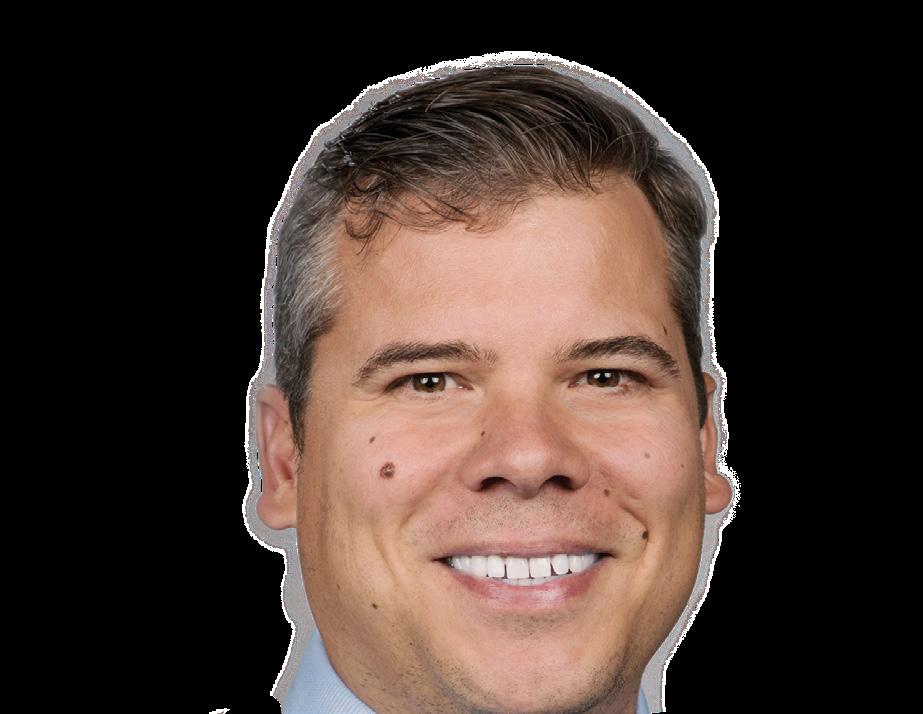
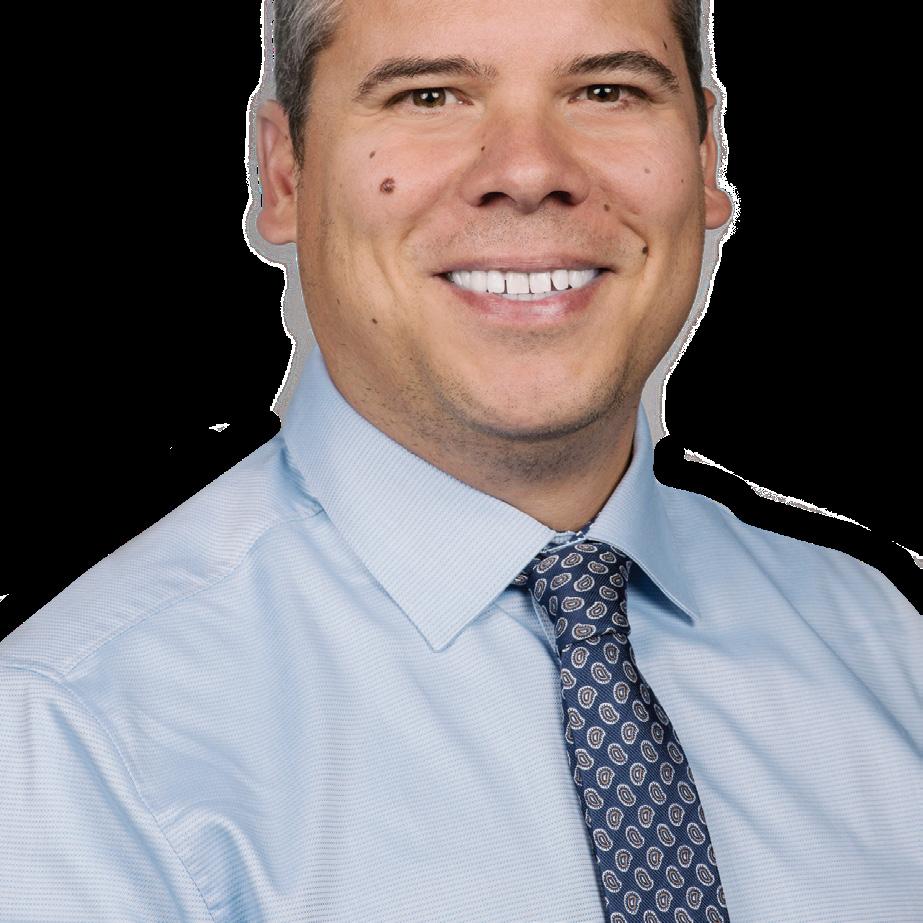
Artificial intelligence (AI) is rapidly transforming the business landscape, creating the need for professionals who are wellversed in this powerful technology. That’s where Daniel Bauer comes in. As senior associate dean for programs at the Wisconsin School of Business, he’s leading the school’s integration of AI in several key areas.
After arriving at WSB in 2018, Bauer was tapped for a task that only someone with his statistical and teaching expertise could tackle: design and build out WSB’s data-focused master’s programs. Now, the Hickman-Larson Chair in Actuarial Science is leveraging his technical background to position WSB as a leader in the AI space—an exciting opportunity to create lasting impact for students.
WSB: How are you integrating AI into school programs?
Daniel Bauer: Updating our curricula to be at the cutting edge is one way we’re doing this. We have these more technical degree programs—such as our Master of Science-Business: Analytics and our Master of Science-Business: Data, Insights, and Analytics—where we expect the graduates to have a deep understanding of AI models to help firms implement this technology into their own processes. Our curriculum in that
space now has even more focus on these large-scale, deep learning models, including foundational and advanced machine learning courses. We’re also helping our instructors integrate AI technology into their courses through an AIEnabled Teaching Excellence Workshop Series.
“Being able to use AI, talk about it, and be on the forefront is extremely important.”
DANIEL BAUER
WSB: What about undergraduate students who likely won’t build AI models— but will still need to know basic AI fundamentals to stay competitive in the workforce?
DB: We are infusing AI throughout the undergraduate curriculum, starting with a required class that introduces students to what these models are, how they work, and how to use them. It teaches students how to utilize large language models for writing improvement and brainstorming, while also making them aware of their limitations.
A key component of this class is a set of podcasts called UNsupervised: AI in Business, where professors from different departments discuss how AI is impacting their field. Additionally, we’re integrating AI components in all our undergraduate core classes and building AI courses in our majors.
WSB: How will an AI-infused curriculum benefit students’ leadership capabilities?
DB: From a leader’s perspective, students need to be able to answer questions like: How do I realize the benefits of AI? How do I integrate it into our processes? How do I think about managing this new ecosystem with AI and human agents? In response,
we’re developing some new classes, starting with our professional graduate programs. One class is about psychology and AI, which focuses on how people use the technology to come to optimal decisions, and what that means for the design of these systems.
WSB: What excites you about the new AI Hub for Business?
DB: The AI Hub for Business gives WSB one central location for strategic interactions between departments and our various partners—including our students, who formed a new AI student organization with the hub’s support. So, if we’re already doing something on the teaching side, but there’s also a corporate appetite for it, we can leverage what’s happening in one area to help in another. The AI Hub for Business allows us to learn and realize synergies that come in from these different activities along these different vectors— which is really exciting. If you think about what we do as a school, there’s the teaching mission for sure. But we also want to push the frontiers of
research. Being able to use AI, talk about it, and be on the forefront is extremely important. There’s also a big mission we have in view of our corporate partnerships, public partnerships, and our impact on the state of Wisconsin. AI is so important to these areas in terms of upskilling, reskilling, and knowing how to benefit from the technology, and the AI Hub for Business helps us get there.
WSB: How do these efforts align with campuswide initiatives?
DB: RISE-AI is a big initiative at the campus level to upskill AI knowledge and familiarity on the research side by hiring many new faculty members at UW–Madison. WSB hired half a dozen researchers who will push forward our abilities and footprint in this space. The great thing about hiring these faculty members within the same year is that it creates a cohort that unites them across their respective departments. The ability for them to learn from each other and collaborate will allow them to tackle some really big questions. ◀
Interview conducted and edited by Haley Boyer
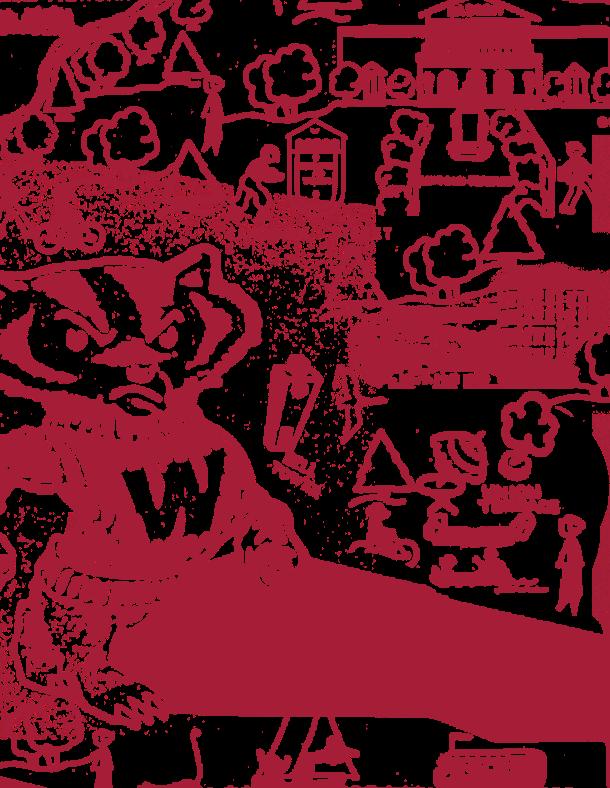

To celebrate the Wisconsin School of Business’ quasquicentennial, some of the school’s most dedicated alumni, students, and friends shared 125 things to love about WSB. From world-class faculty to Badger game day tailgates in Grainger Hall, there’s so many reasons why
reflect fondly on their alma mater.
“Sitting atop the Morgridge Auditorium feels like surveying the world from the summit of Mount Everest, believing that we are all destined to be movers and shakers.”
NEVILLE LAM (BBA ’97)
“I love the immediate community that the faculty and staff made for me— even before I applied. They genuinely cared for me and made space for me and my experiences.”
—Stephanie Toney (MBA ’04)
“I met two Badgers in my study abroad summer program in Amsterdam two years ago, and now we have lunch every week in Grainger Hall. These friendships wouldn’t have been possible without WSB.” —Sophia Novak (BBA ’25)
“It’s all about the people, particularly the legends of the Wisconsin School of Business, like Bruce Harms (BBA ’72, JD ’75), Loren Kuzuhara (MBA ’93, PhD ’94), and Tim McClurg. Whenever I visit Grainger Hall, I always smile as I walk by offices where the nameplate is still the same as when I graduated 25 years ago. That level of loyalty and dedication is rare and is what makes WSB so special.” —Scott Finkelmeyer (BBA ’99)
“Having the support of faculty and staff to start a new marketing student organization: the American Marketing Association!”
—Katie Yadro (BBA ’15)
“WSB continues to lead the market in research and in overall development of good humans. The world needs WSB.” —David Hanley (MBA ’15)
“What I love most about the Wisconsin School of Business is how the courses are thoughtfully designed to directly benefit us in the real world. These courses have not only deepened my technical knowledge,
“Arif Qureshi (BS ’94, MS ’04) had a quote I loved: ‘Fajitas will always sell for more than tacos.
but have also enhanced my strategic thinking and prepared me to make a meaningful impact in the business world.”
—Jessica Colby (MBA ’21)
is top notch and exceeds expectations.” —Yevgeniya Rudnytsky (MBA ’19)
“I love remembering the camaraderie of my fellow scholars in The Consortium for Graduate Study in Management and our fun study groups.”
MASON BRUNNER (BBA
’24)
“Professor James A. Graaskamp (PhD ’65) treated me as family.”
BRUCE PERCHIK (BA ’75, MS ’80, MS ’96)
“I love the tradition and alumni network of WSB, always feeling connected. During my MBA program, I participated in a great internship in North Carolina, and still keep in touch with the friends I met there. I also hosted a group of MBA students who were visiting China after graduation and working in Beijing.” —Xiaoyan Sun (MBA ’09)
“WSB is a very diverse and challenging business school. I feel that I was able to gain a well-rounded perspective in many areas of business beyond just my finance major.” —Lexi Siegel (BBA ’24)
“High-value programs where leadership listens to the students and adjusts along the way to ensure the program experience
DAWN MANN (MBA ’90)
“The best part of WSB was our MSBA lounge! We had snacks, a coffee machine, a quiet place to study, and cool arcade game machines! The MSBA program also did fun excursions like ice fishing on Monona Bay, a professional career networking trip to Chicago in the spring, Diwali/ Lunar New Year celebrations, career fairs/weekly panels, and so much more. WSB embraces our diversity and celebrates what makes each of us special and unique.”
—Hannah Lesko (MS ’23)

”
KELLY
“The school’s culture and commitment to continuous improvement and raising the bar.” —Abrianna Barca (BA ’11, MBA ’18)
“All the time I spent at the Grainger Café, whether being productive or just chatting with friends, is a staple of my experience at WSB!” —Ryan Van Handel (BBA ’23)
“I loved the out-of-theclassroom opportunities that we had through the Grainger Center for Supply Chain Management. Highlights included site visits to Culvers’ headquarters and Miller Park, and our annual cheese curd crawls!” —Lauren Miller (BBA ’20)
“My favorite experience at WSB was working in the Career Studio. I got to see WSB from a new point of view, and form connections with friends and mentors who made the school so very special to me.” —Sam Komisar (BBA ’23)
“My favorite memory was having a beer with the late David W. Grainger (BS ’50) and Juli Plant Grainger (BPH ’48) at the Grainger Hall dedication ceremony. Also, professors Joseph Boucher (JD ’77, MBA ’78), Rodney Stevenson, and Terry Warfield all prepared us to succeed in the real world, not just on the next exam.” —Joe Lukas (BBA ’95)
“I love how comfortable and welcomed I feel at WSB. Whether it’s in class, study spaces, or office hours, there’s a strong sense of community that makes it easy to connect with others.” —Lila Randall (BBA ’26)
WSB carried more weight than an MBA from most institutions.”
—John Fischer (BBA ’97)
“I love the sound of the Grainger Hall hallways. It’s very special to be surrounded by brilliant minds who will shape the future of the world.”
—Drew Grismore (BBA ’24)
“The school’s dedication to supporting those who support our students.”
ALEXIS STEINBACH (BS ’13,
MS ’18)
“Student organizations. They help prepare students for competitive careers, allow them to give back to the student community, and provide plenty of social and networking opportunities.
—Jason Li (BBA ’25)
“No matter how long it has been, you are, and will always be, part of a valuable community.” —Mike Garvey (BBA ’77, MBA ’80)
“Real estate club field trip to Minnesota. It was a blast. I learned a lot and started some lifelong friendships. A few on the trip started some courtships!” —Elaine Worzala (BBA ’84, MS ’85, PhD ’92)
“My first M. Keith Weikel Speaker Series event with Carey Lohrenz (BA ’90), the first female F-14 fighter pilot.”
—Melanie Swanson (MBA ’11)
“The quality of the education I received by obtaining an undergraduate degree from
“It was and remains a home away from home for me. Warm, welcoming, diverse, friendly, and open, just as a family and a home are.”
QURAISH BALDIWALA (MBA, MS ’02)
“My degree in actuarial science allowed me to work in a job that I loved.” —Dennis Carlson (BBA ’59)
“The lifelong friendships and invaluable experiences during my time at WSB played a pivotal role in shaping who I am today. I’m eternally grateful to be a Business Badger.”
AMY FENSCH (BBA ’95)
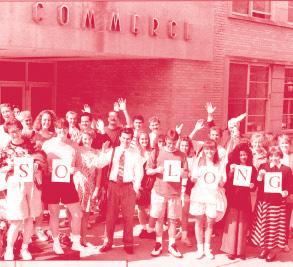
“I was fortunate enough to experience the first semester of the ‘new’ business school when it opened before I graduated. Moving from the Commerce Building to Grainger Hall was such a breath of fresh air.”
—Jon Rehfeld (BBA ’93)
“WSB’s focus on developing specialties in its students through establishing centers, such as those for marketing research, real estate, investing, and insurance. This results in students being sought after by companies.”
—Jason Elzaurdia (BA ’90, MBA ’01)
“After 38 years spent using many of the topics and techniques used in graduate school, I’m still married to the man assigned to the seat next to me in my very first class.” —Diane Foley (BA ’78, MS ’85)
“It has the best real estate program in the world .”
STEVE STILOSKI (BS ’87, MS ’89)
“We all know that there is a special bond among Badgers. But there is a deeper bond when you are a Badger and a WSB alum. You look a little closer at the résumé. You’re more willing to take the appointment. You offer up your time to counsel and guide a new graduate. We all know how much we benefited from our WSB education and we want to give back.” —Britten Brenner Stenson (BBA ’98, MBA ’12)
“The strong affinity that alumni and corporate leaders have for WSB. The strong Business Badger brand transcends geography and industry.”
ANDREA DEROUIN BECHTEL (BBA ’89)
KEMAL FARROKHNIA (MS ’10, MBA ’18)
“The Business Learning Center. I have fond memories of this resource, and it embodies the collaborative community that is WSB.” —Amanda Ngo (BBA ’18, MAcc ’19)
“I cannot speak highly enough about the entrepreneurial culture that Adam Bock (MBA ’99) and Phil Greenwood (BBA ’84, MBA ’89, PhD ’02) built while I was at WSB, which was rooted in case studies and personal branding. Dan Olszewski (BS ’87) and Jon Eckhardt also created such a collaborative, open-door environment for ambitious students looking to build a disruptive world!”—Jacob Erlichman (BBA ’19)

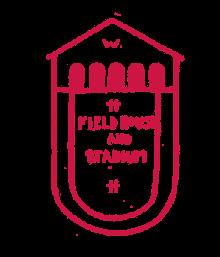
“The school took me to Denver, Seattle, Hong Kong, Cannes, and beyond. And on each trip, I had authentic and personalized interactions with successful and engaged alumni who could help me.”
ALEXANDRA KIRK (MBA ’17)
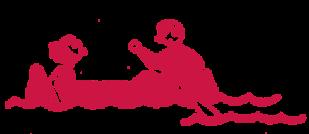
“I have a special love for the hardworking people in the career placement office. Everyone there took time to help you. They knew your name. They took the time to be involved in your career search. Great people.” —Peter Scalera (BBA ’79, MBA ’80)
“Amazing faculty and staff, as well as bright and talented students, create a wonderful environment for learning, growing, and having a lot of fun on the way.”
DEB JAHNKE (BS ’94, MBA ’17)

“Those giant Rice Krispies Treats from the Blue Chip Deli were amazing!”
BETH STOWELL REED (BBA ’98)
“It’s a world-class institution located in a world-class city where you can really learn to learn.”
JAY WARNER
(BBA ’97, MS ’03)
“I love the energy, brilliance, and innovation of WSB! Whether you’re a student or an alum, you can always feel its positive influence in your academics, career, and life.”
—Reena Vokoun (BBA ’98)
“It’s a place where diversity and inclusion are valued and fought for in every way possible.” —Anthony Ornek (BBA ’20)
“The coaching and mentorship provided for the executive MBA program are exceptional, and so is the team.” —Joshua K. (MBA ’26)
“The quality of the professors and the exchange of business cases to foster diversity of thought, collaboration, and
open dialogue.” —Michelle Bougie (MBA ’20)
“First year MBA accounting was a crucible in 2015. If you could survive that, then you knew you were going to make it. You had to be there, man!”
—Brandon Shields (MBA ’17)
“The interesting, inspiring, and visually appealing Virtual Exchange (better known as the XO) artwork in Grainger Hall’s east atrium. As a student interested in both technology and business, I was always intrigued by the intersection of these two areas of study as exemplified by the “X” in the artwork. The “O”
would remind me of the recursive relationship between technology and business needs.”
PAUL BOYER (BBA ’19)
“WSB is a place that allows anyone to grow. I joined the Army out of high school before gaining entry into UW–Madison and WSB. As a kid from a small farming community, the school allowed me to grow and gave me a chance.” —Ryan J. Damask (BBA ’98)
“I love the culture of excellence upheld by the Wisconsin School of Business. It focuses on excellence, not perfection, leaving room for learning and growth. This approach fosters not only exceptional students and employees, but also individuals with high standards who are constantly striving to become the best version of themselves.” —Zoe Jenkins (BS ’20, MS ’21)
“Case competitions! I competed in marketing and supply chain events and won both!” —Evan Smestad (BS ’91, MBA ’04) To read all 125 things to love about WSB, visit
business.wisc.edu/ update/fall-2025 ◀

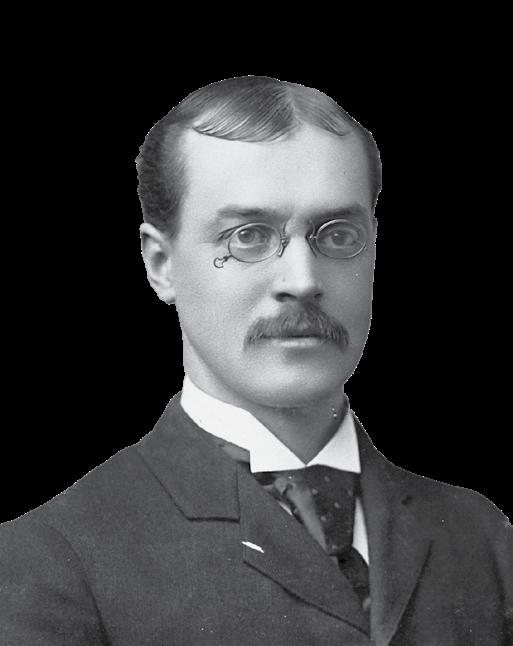
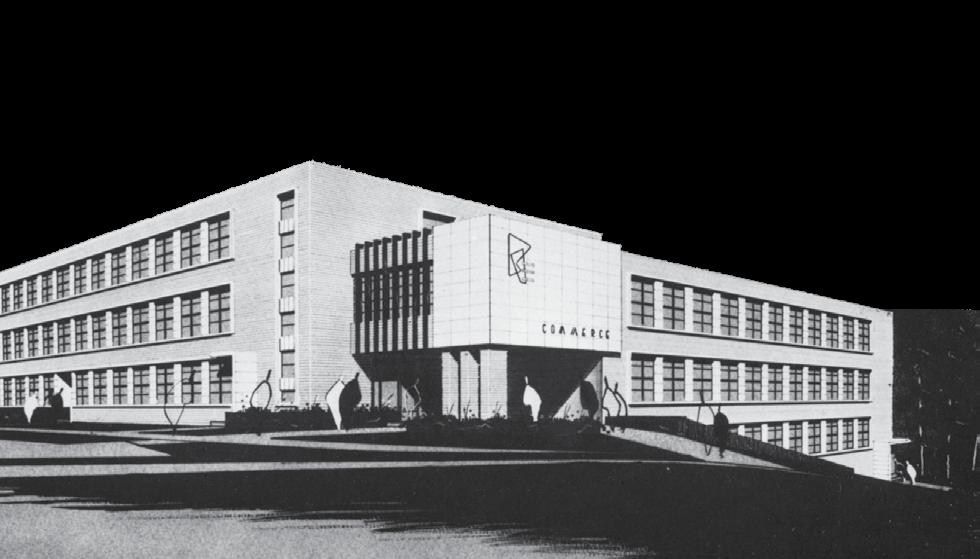





BY HALEY BOYER (BA ’20)
Since its founding in 1900, the Wisconsin School of Business has been a pioneer in business education, leading the way for new innovations, groundbreaking discoveries, and bold ideas. With a culture rooted in forward thinking and advancement, WSB has pushed its way out in front— and among the firsts—in more ways than one.
In WSB’s 125 years, there are countless examples of how the school has set a new standard for business education. Journey through WSB’s rich history to witness a snapshot of the school’s transformational firsts, and discover the movers and shakers who turned ideas into action. Their aha moments and revolutionary ideas—which merely scratch the surface of WSB’s long-lasting legacy and impact on the business world—illustrate the school’s commitment to innovation, leadership, and daring to do what’s never been done before.








1900




UW–Madison establishes one of the first commerce programs in the country, known today as WSB.
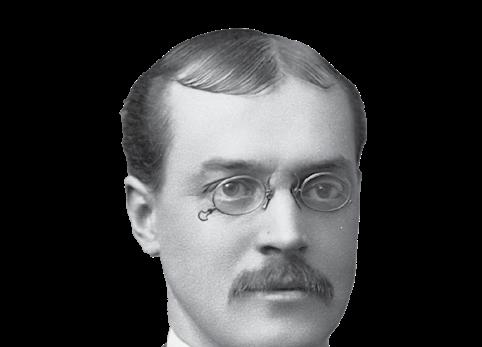
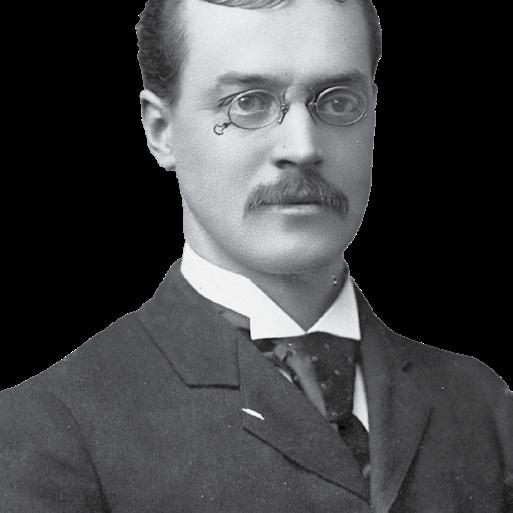
1900 | William A. Scott, a faculty member in political economy and commerce, is named the first director of the School of Commerce.










The School of Commerce receives separate school status from the Wisconsin Legislature and becomes independent from the College of Letters & Science. Fayette Elwell (BA 1908) is named the school’s first dean.
Richard Ely, director of the School of Economics at UW–Madison, introduces the study of land economics and real estate. Ely also leads a team of academics and practitioners to establish the nation’s first real estate curriculum.











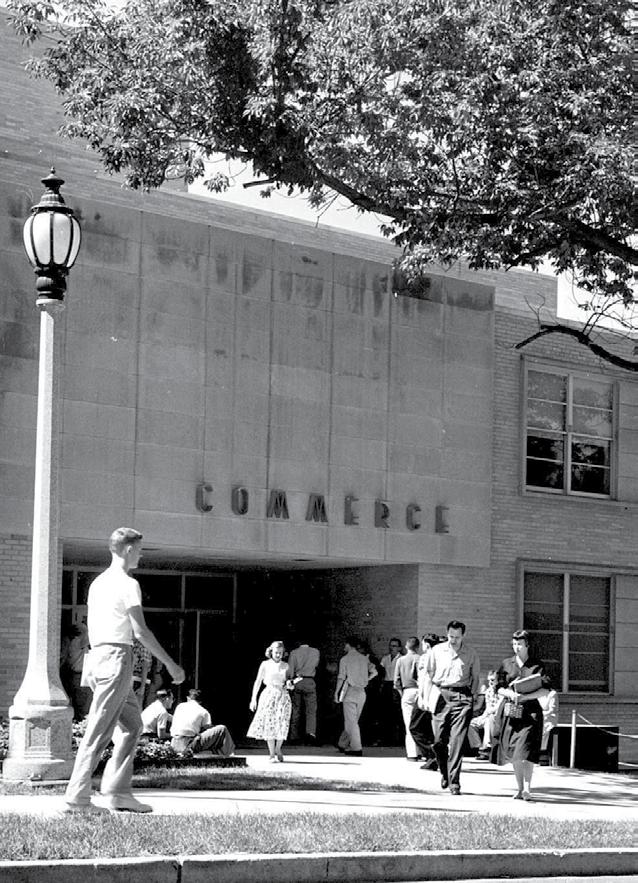

The School of Commerce establishes the country’s first graduate program in public utilities.




















The Wisconsin Real Estate Program becomes the first in the nation to be recognized by the National Association of Realtors. WSB later established the Center for Urban Land Economics Research, which was renamed the James A. Graaskamp Center for Real Estate in 2007, honoring the legacy of the late professor and trailblazing leader in the field.



1966
1991 | The Grainger Center for Distribution Management, known today as the Grainger Center for Supply Chain Management, opens with support from The Grainger Foundation as the nation’s first endowed, specialized program in supply chain management.

1998 | The school experiments with its first fully internet-based course, Organizational Behavior.
The School of Commerce is one of three founding members of The Consortium for Graduate Study in Management, a nonprofit organization promoting diversity in business education and leadership.

Larry Harris (MBA ’68), first graduate of The Consortium.



1969
The country’s first graduate program in arts administration launches and is endowed as the Bolz Center for Arts Administration in 1993.



1993

Grainger Hall opens, the first building on campus built with combined public and private financing.



1993

Stephen Hawk (BBA ’63, MBA ’64, PhD ’69)

1970
Building on Professor Frank Graner’s (PhD ’48) original idea, Professor Stephen Hawk (BBA ’63, MBA ’64, PhD ’69) launches the Applied Security Analysis Program, which allows students to invest and manage real money. The first-ofits-kind program started with a $100,000 grant—and now manages over $17 million.


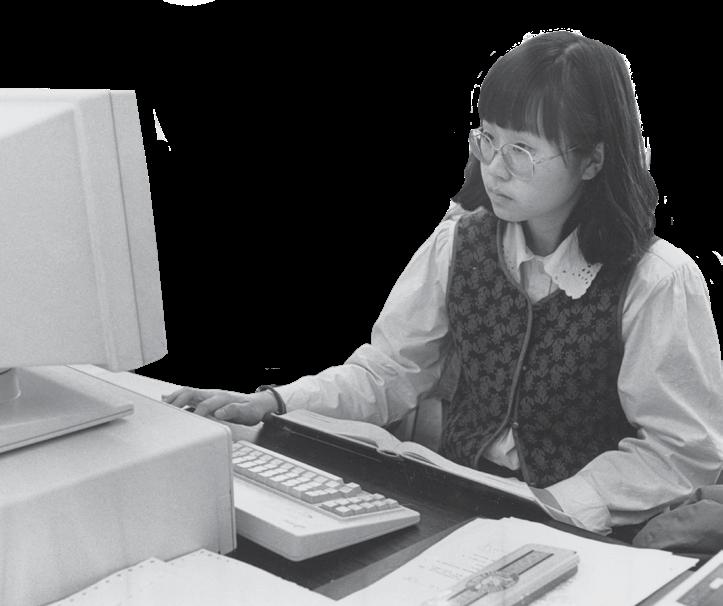
1984 | The school is one of eight selected by IBM to test computers with shared mass data storage as it prepares to meet the growing demand for computing resources and training.

The school launches the Wisconsin Executive MBA, its first degree offering designed for working professionals.







1996
James Weinert (BS ’67, MBA ’69) helps establish the Weinert Applied Ventures in Entrepreneurship, a firstof-its-kind practicum in starting and growing businesses.









H. Signe Ostby (BBA ’75, MBA ’77) and Scott Cook establish the nation’s first university-based center focused exclusively on training MBA students in brand and product management.






The Erdman Center for Manufacturing and Technology Management graduates its first MBA student. The center, known today as the Erdman Center for Technology Strategy and Product Management, was made possible in the previous decade by Marshall Erdman (BPH ’48) in memory of his late wife, Joyce (BA ’46, MA ’47), a strong supporter of the school and university.


2019 | WSB launches the Master of Science-Business: Analytics program, the first in-person business analytics degree program offered by the Universities of Wisconsin and the first of several new specialty master’s programs the school now offers.


2017 | During WSB’s first hackathon, 15 MBA students examine Kimberly-Clark data, looking for solutions to bring the company’s aggregate loss closer to a zero balance.



2007 | A group of 13 alumni give $85 million to form the Wisconsin Naming Partnership, the first of its kind received by a U.S. business school, designed to preserve the Wisconsin School of Business name for at least 20 years. The Wisconsin Naming Partnership later added three additional partners to grow the gift principal to $105 million.

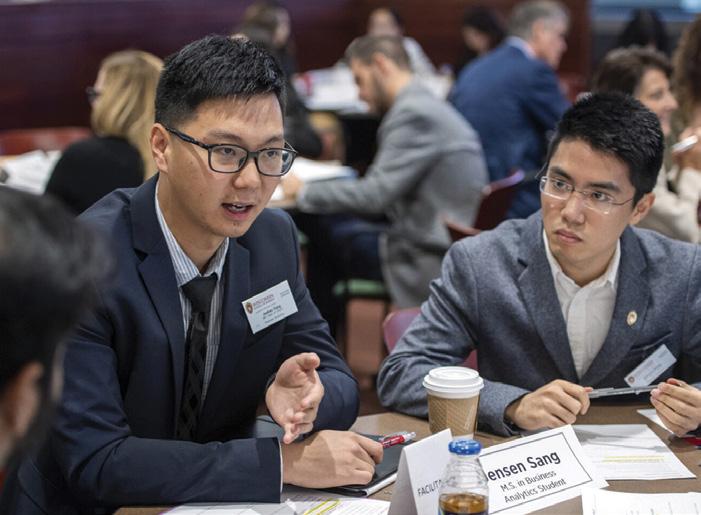












2023 | The Master of ScienceBusiness: Data, Insights, and Analytics program launches, WSB’s first online-only graduate degree.
…and the firsts won’t stop here! WSB will continue leading and innovating for the next 125 years—and beyond.




















The Multicultural Center opens, making WSB among the first business schools in the nation to offer a center dedicated to building cultural fluency and fostering an inclusive community.


Meet the pioneering Business Badgers who made their mark on UW–Madison.
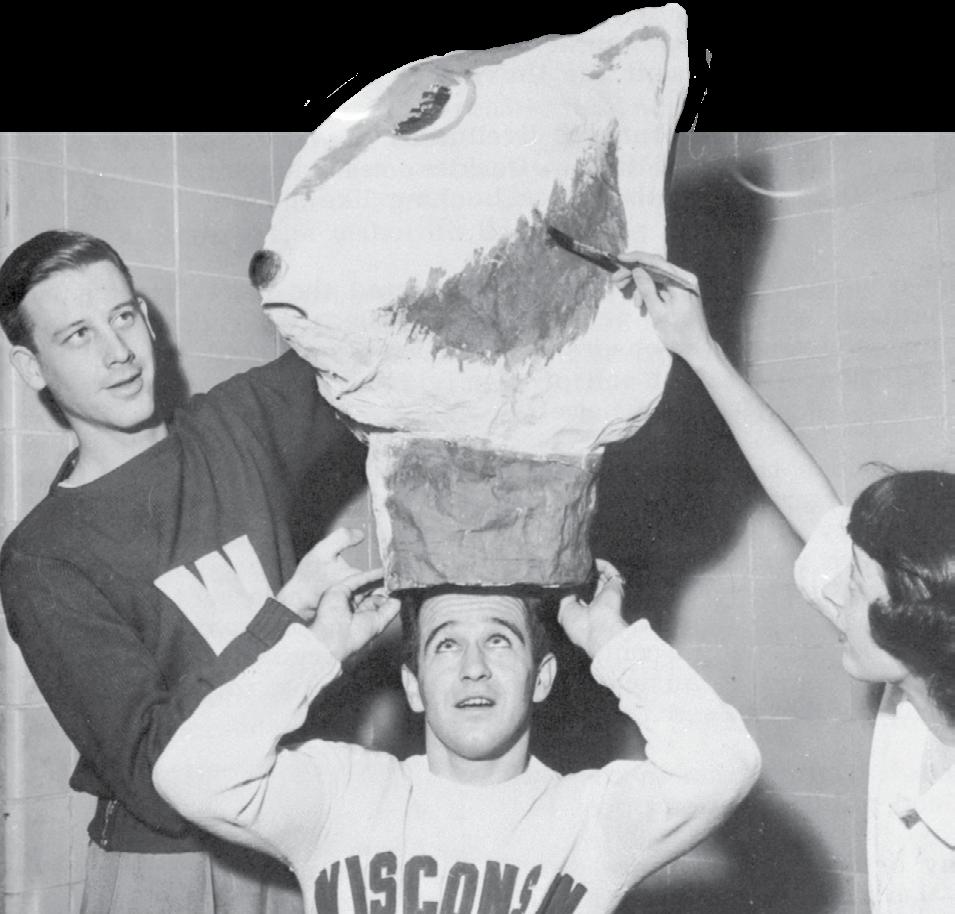
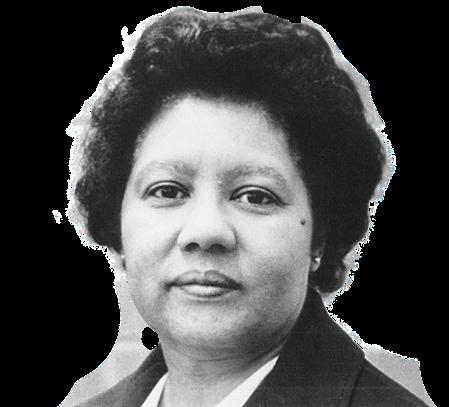

Every graduate of the Wisconsin School of Business has their own story, their own journey, and their own achievements. No matter their path into business, they all share one thing: the experience of attending a school that rewards big aspirations. From starting a business or a recognizable brand to making it big in the entertainment or scientific fields, here are 25 of those stories—all made possible by one school.
(BBA ’50)
With a little creativity—and a lot of papiermâché—Sachse commissioned the design of the very first Bucky Badger head in 1949 alongside fellow students Connie Conrad and Bill Sagal (BS ’51). Working off an illustration of UW–Madison’s then-unnamed, sweater-clad badger, the team designed a wearable head to be placed atop a member of the cheerleading squad. They debuted their creation at a football game, and the rest is history.
Larzette Hale-Wilson (MPH ’43, PhD ’55)
Hale-Wilson was the first Black woman CPA in the country to earn a PhD in accounting. She later launched a CPA firm, taught at Utah State University, and became the head of its School of Accountancy.
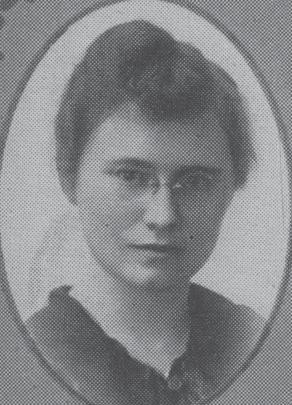
Mary McNulty (BA 1917)
A native of Spring Green, Wisconsin, the selfdescribed “Commerce Girl” enrolled at UW–Madison during World War I and became WSB’s first female graduate. She had a 40-year accounting career at Wisconsin Power & Light Co. and retired as the company’s comptroller.
From kitchen cupboards to living room TVs, these WSB alumni played key roles in powering the businesses, teams, and brands that we all know and love.
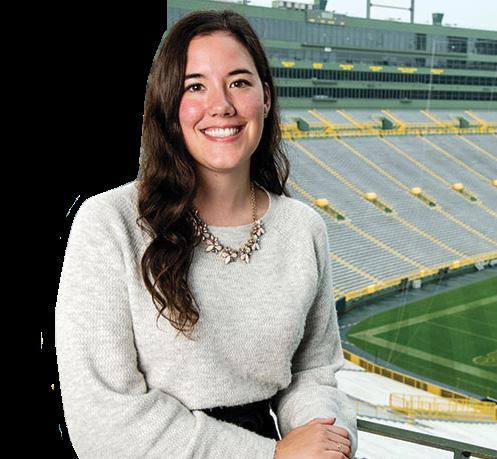
Ruid knows a thing or two about Wisconsin sports. While a student, Ruid’s social media posts about the Milwaukee Bucks led to a unique opportunity; the team invited her to share the fan perspective on their social accounts for Bucks Media Day, kickstarting her sports career. Internships at the NBA headquarters and FOX Sports Wisconsin soon followed, where she worked in corporate services and marketing. Ruid also held a student position at University of Wisconsin Athletic Communications.
After graduating from WSB, the marketing and international business major headed to Lambeau Field, where she scored a marketing and brand internship with Wisconsin’s Green Bay Packers, and then focused on digital marketing and fan insights for five years.

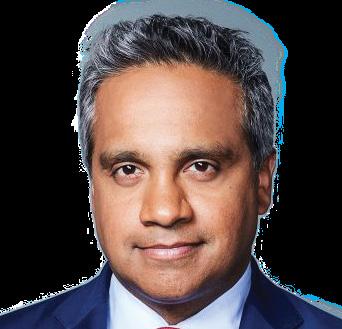
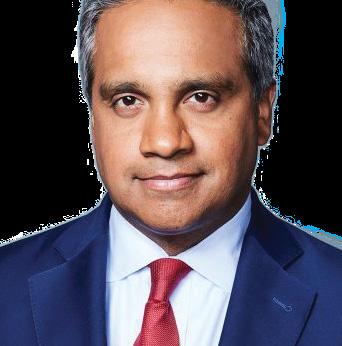
Manu Raju (BBA ’02)
Beginning his media career at UW–Madison’s student newspaper, The Badger Herald, Raju is now the anchor of CNN’s Inside Politics Sunday. The veteran Washington, D.C., reporter also covers Capitol Hill and campaign politics as chief congressional correspondent.
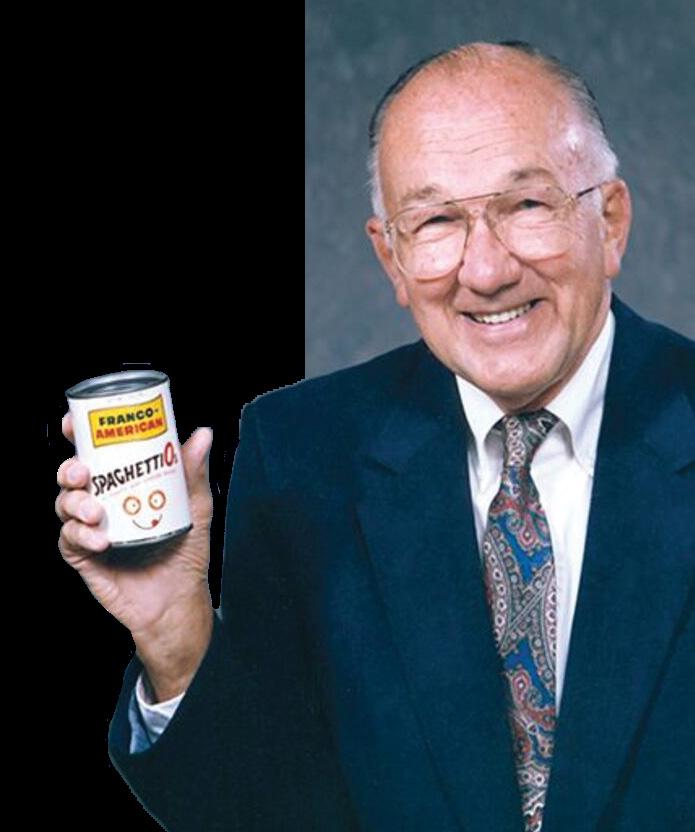
Donald Goerke (MBA ’51)

Aaron Kennedy (MBA ’89)
Inspired by a Thai noodle shop in New York City, Kennedy founded the restaurant franchise Noodles & Company, opening the first location in Denver in 1995. The following year, Kennedy and his partner opened a second location in Madison on State Street, where it remains as the company’s longest-standing location! Today, the popular eatery has over 460 locations across 31 states, offering globally influenced noodle dishes in a fast-casual setting.
Uh-oh, SpaghettiOs! It’s been 60 years since the childhood staple first landed on grocery store shelves, and kids today are still enjoying the late Goerke’s circular pasta creation, SpaghettiOs. After beginning his marketing career at Valentin Blatz Brewing Company, the Waukesha, Wisconsin, native spent the rest of his 35year career at Campbell’s Co., where he was tasked with creating an easy-toeat meal for children. The round pasta was perfect for canning, reheating, and most importantly for parents: eating with a spoon without making a mess! The product was a pop culture sensation that brought Goerke into the spotlight. He appeared on Today and What’s My Line?, and autographed cans at company-sponsored events.
These Business Badgers transformed their ideas and inspirations into successful companies and new ways of doing business.
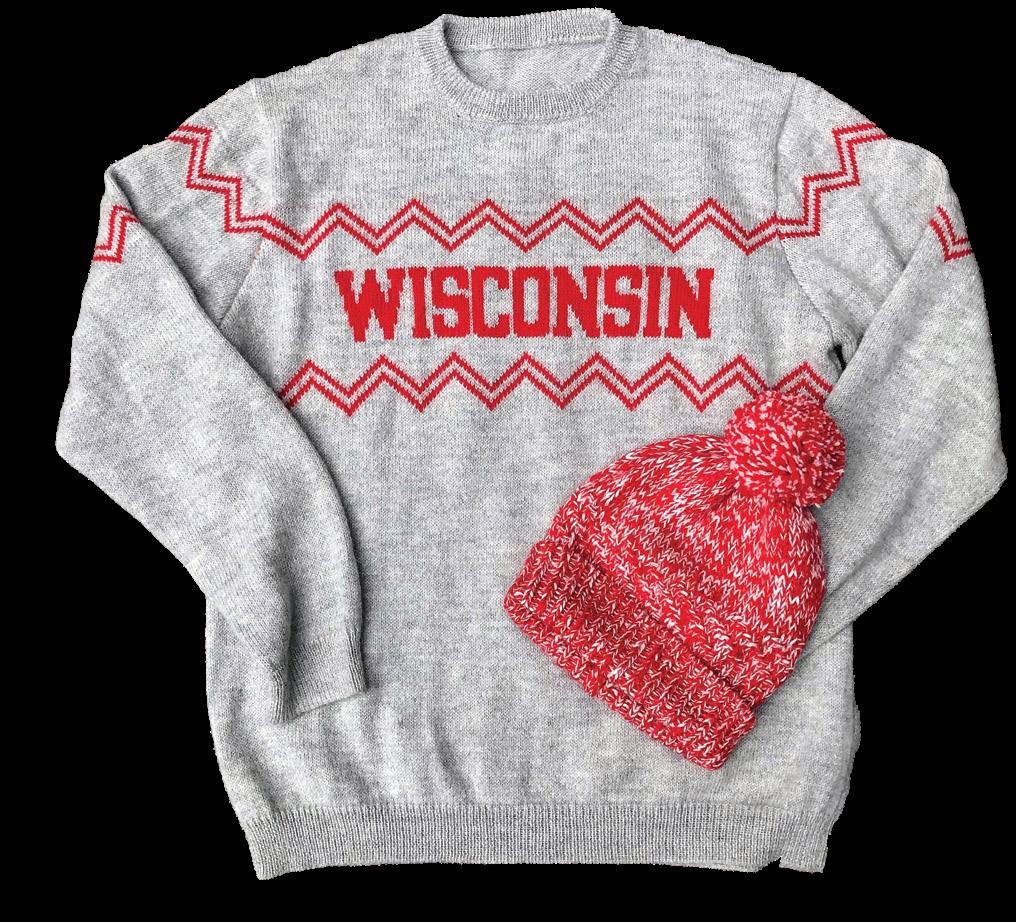

(BBA ’12)
Lorenz is creating positive change—and cozy alpacainspired products—through her company Campo Alpaca.
Launched in 2017, the business works with Peruvian artisans to craft Wisconsin-themed sweaters and more, while ensuring that creators receive fair wages and have access to safe work environments.

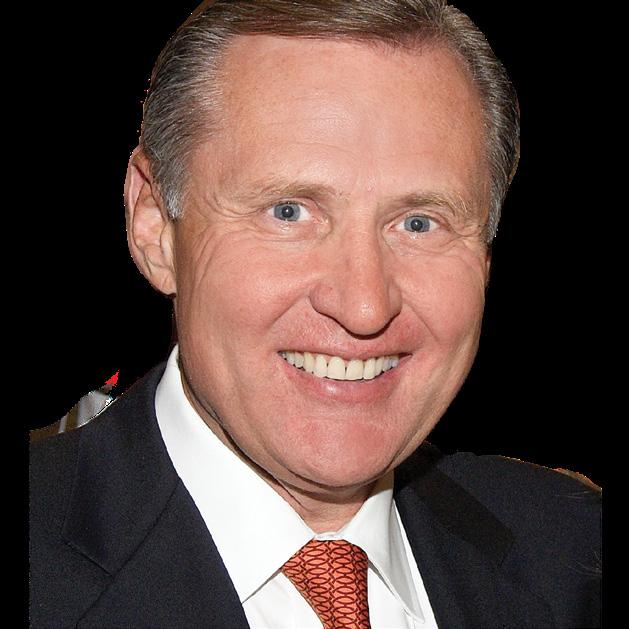

Tyler Kennedy (BBA ’13) and Wes Schroll (x ’15)
What started as a WSB assignment is now a thriving business valued at over $1 billion. Kennedy and Schroll are the founders of Fetch, a consumer rewards app used by millions.

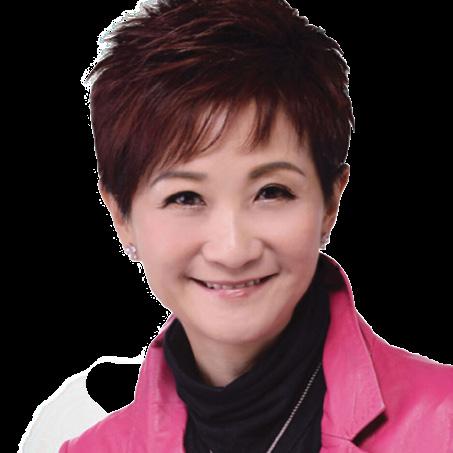
Viveca Chan (BBA ’76)
A pioneer in advertising and e-commerce, Chan founded WE Marketing Group in 2005, one of China’s first independent brand consultancy and integrated communication agencies that focuses on bringing the West to China—and China to the world.
Jon D. Hammes (MS ’74)
Hammes’ impact on real estate is felt across the country and in WSB’s own backyard. In 1991, the real estate major founded Hammes Company, a Milwaukee, Wisconsin-based firm focusing on commercial real estate development and property management. For 30 years, Hammes Company has managed the construction of several sports venues, including UW–Madison’s Kohl Center and the expansion of Lambeau Field. Other notable venues include Ford Field for the Detroit Lions and U.S. Bank Stadium for the Minnesota Vikings.
Mildred Kramer Gill (BA 1927)
One of the first women to graduate from WSB, the late Kramer Gill put her entrepreneurial spirit into action in 1936 when she opened a printing shop on the Capitol Square in Madison with a typewriter and a mimeograph machine. Kramer Gill was president of Kramer Printing—which still stands today as Kramer Madison in Waunakee, Wisconsin—until her retirement in 1980.

Dale Nitschke (BBA ’84)
Those who enjoy shopping at Target.com can credit Nitschke, who developed the website in 1999 and served as its president for over eight years. Nitschke is now the founder and chief executive officer of Ovative Group, a successful digital marketing and measurement firm.
Through philanthropy and servant leadership, these alumni have created lasting impact.
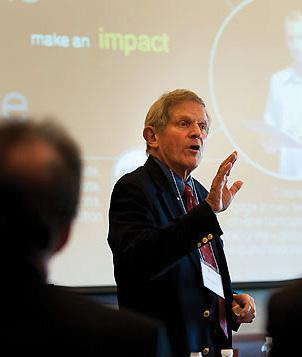
(BBA ’55)
Few people have shaped UW–Madison like John and Tashia Morgridge (BSE ’55). As the university’s single largest benefactors, the couple has funded faculty positions, research, public service, and state-of-the-art facilities—to mention just a portion of their visionary philanthropy on campus.
Their generosity extends beyond campus, too. Through their Fund for Wisconsin Scholars, more than 28,000 students from low-income backgrounds have been awarded $140 million in grants and stipends to pursue higher education in Wisconsin.
Despite their obvious fondness for the Badger state, it was California that called their name after graduation— John to the tech world and Tashia to teaching. John joined Cisco Systems in 1988, becoming one of its first 40 employees and eventually rising to president, CEO, and chair of the board.
In 2024, the duo received UW’s inaugural Distinguished Service Award in recognition of their unparalleled support and generosity.

Ricky Sandler (BBA ’91)
Badgers working in finance have Sandler to thank for championing their professional success through recruiting networks, internship programs, philanthropy, and more. Founder of Eminence Capital, LP, Sandler also teaches WSB’s Applied Equity Market Research capstone course.

Mary Rennebohm (BA 1920)
Phillip T. Gross (BBA ’82, MS ’83)
Gross is a founder, philanthropist, and advocate for diversifying the financial sector. His $10 million gift launched Project ACCLAIM, which provides funds for HBCU students to invest and manage—a model based on WSB’s Applied Security Analysis Program.
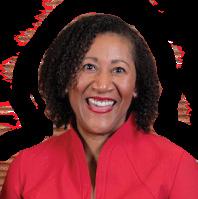
Dorri McWhorter (BBA ’95) McWhorter is synonymous with social enterprise business leadership. She’s been CEO and board advisor to several charitable organizations driving human-centered change in Chicago and beyond.
Through the Rennebohm Foundation, this accounting major and former first lady of Wisconsin provided multimillion-dollar support to local organizations, including UW–Madison.
There’s no business like show business, and these alumni have made an indelible mark.

(BBA ’17)
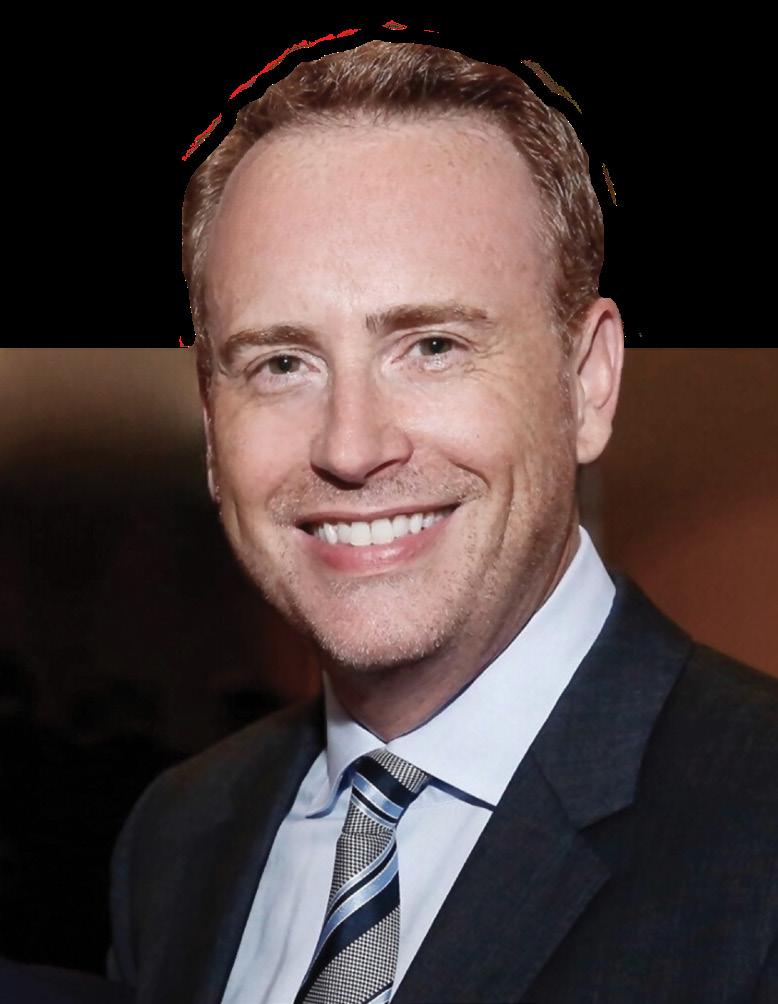
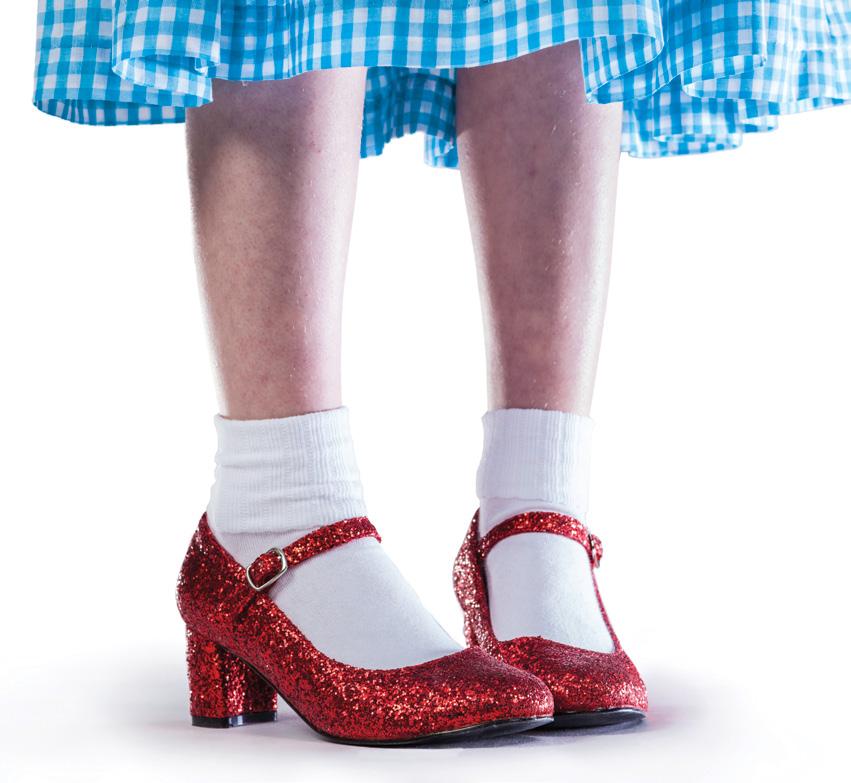
With over 7 billion streams, Hauri—aka rap star Yung Gravy—has built a platinumcertified music career and global fanbase through six albums, headline tours, and genre-blending collabs with T-Pain, Shania Twain, and Zac Brown.
Though television executive Greenblatt might not be a household name, his hit shows—Six Feet Under, Weeds, and The X-Files to name a few—certainly are. Growing up in nearby Rockford, Illinois, Greenblatt got involved in local community theater before attending UW–Madison and graduating from WSB’s arts administration program in 1984. His storied career in television began with Fox and later Showtime, where he served as head of programming, responsible for blockbuster shows such as Dexter,
Born on a Wisconsin dairy farm in 1915, accounting graduate Raabe played a role in two iconic events of the era: the launch of the Oscar Mayer Wienermobile and The Wizard of Oz. After graduating from WSB, Raabe accepted an accounting job at Oscar Mayer in 1937, just as Carl Mayer was creating the Wienermobile. Mayer suggested Raabe—who then stood under four feet tall—could tour around the country with the vehicle as “Little Oscar, World’s Smallest Chef.” While touring, Raabe met friends who passed along a tip about a movie casting little people. Raabe earned a role in the classic film, playing the coroner who tells Dorothy the Wicked Witch is dead.
Weeds, and Californication. Greenblatt’s influence continued as chairman of NBC Entertainment and WarnerMedia Entertainment, where he produced the acclaimed Six Feet Under and other successful programming for HBO. Today, he leads his own production company, The Green Room, with a legacy marked by numerous Emmy, Producers Guild of America, and Tony Awards, as well as the GLAAD Stephen F. Kolzak Award recognizing his impact on LGBTQ visibility.

Jennifer Melin Miller (BBA ’94)
An experienced investor and producer, Miller brought her business savvy and passion for theater to Broadway’s biggest stages. This work earned her a 2019 Tony Award as co-producer of Hadestown
From worlds contained in a human cell to the vast expanses of architecture, these alumni crossed new frontiers in science and sustainability.

Sean Park (BBA ’12)
(MBA ’11)
Paris-born molecular biologist Barrangou’s leading-edge research advanced scientific knowledge about the immunity capabilities of CRISPR, a bacterial DNA sequence, and helped set the stage for the future of gene editing. He’s a member of the National Academies of Sciences, Engineering, and Inventors.
Park revolutionized the sustainable architecture landscape in 2019 as a cofounder of EnergyX. The firm is the world’s sole source for holistic solutions for outfitting and retrofitting zero-energy buildings. ◀

For this list, the Update editorial team chose 25 alumni stories from the last 125 years that showcase the breadth and depth of the WSB experience. Through research, trips to the campus archives, and deep dives into back issues of the magazine, we selected individuals with fascinating backgrounds, impactful achievements, unique career paths, and that “it” factor.
You may recognize some of these names; others might be new to you. But by no means is this a comprehensive list of all of the amazing alumni that have walked through WSB’s doors. With nearly 60,000 graduates since 1900, how could it be? But we hope these stories leave you delighted, surprised, and proud to be part of the Business Badger community.
—Clare Becker, Haley Boyer, Shaysa Sidebottom Cook, Betsy Lundgren, Chris Malina, and Erin Canty Ryan
For 125 years, the Wisconsin School of Business has grown year by year—driven by curiosity, bold thinking, and a desire to lead with purpose. Since its founding in 1900, that entrepreneurial spirit has shaped generations of Business Badgers who dream big, take inspired risks, and give back. Those values remain as vital today as they were at the start—and will shape what’s to come.
To mark this milestone, WSB turns its gaze toward the future.
What might the school look and feel like at its 150th anniversary? What ideas will take root? What traditions will evolve? From classroom to career to campus life, five Business Badgers offer their vision for WSB’s next 25 years.
Their predictions—thoughtful, optimistic, forwardthinking—form a kind of time capsule: unique perspectives, grounded in the present but looking boldly ahead.
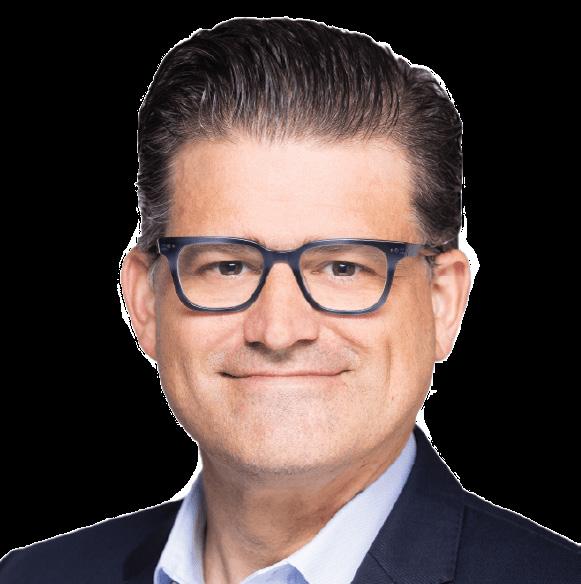

Jay Laabs
Chief Executive Officer, Spaulding Ridge (BBA ’98)
In 25 years, WSB will have similar disciplines to today, but the curriculum and how the content is delivered will be radically different. Large language models will render traditional textbooks and lecture halls obsolete. Students will consume more content independently with the support of agentic AI to foster a learning path that is individualized to the learner. The physical building is likely a collaboration area as students share ideas and solve problems alongside each other, faculty, AI agents, and businesses.
With this in mind, students will need to learn how to direct AI across multiple disciplines including finance, HR, and marketing, but there will always be a need to bring a human understanding of what the outputs mean—that is where the university will need to focus its instruction and project-based learning. This will all be supported with strong alignment and collaboration between WSB, Engineering, the School of Computer, Data & Information Sciences, and other schools and departments prioritizing advancements in AI and its global implications.
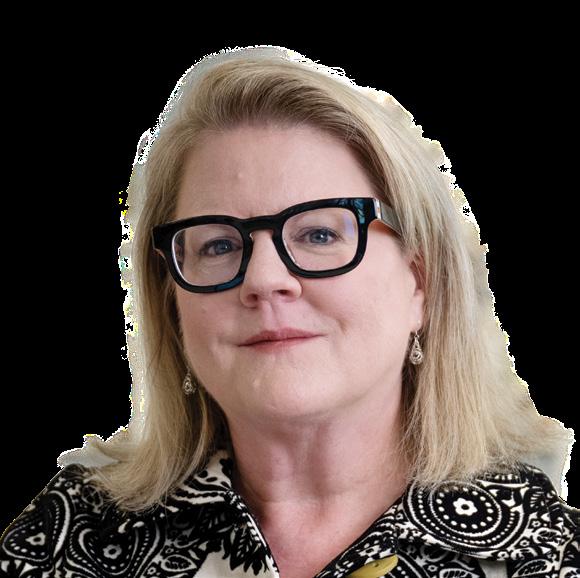
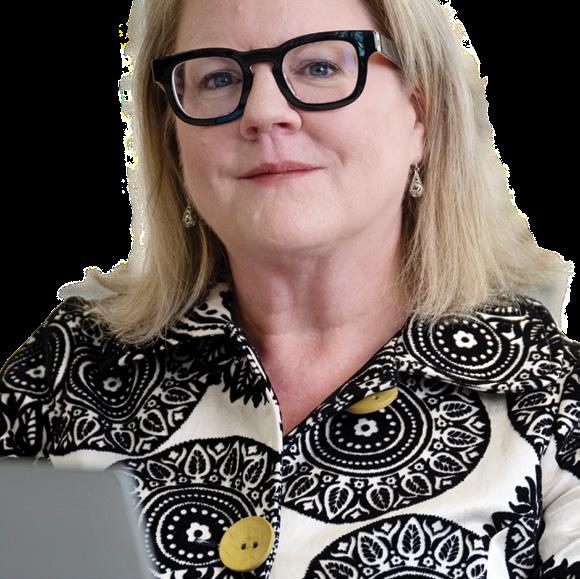
Associate Dean of Research, Professor, John R. Nevin Chair in Marketing
With the rapid acceleration and adoption of AI technology, growing social, economic, and political uncertainty, and transformative changes in teaching and learning, it is difficult to predict what business schools will look like in the next six months, let alone the next 25 years.
Yet for 125 years WSB has been a leader in business education because it has stayed true to its strengths as a grounded, forward-thinking, and adaptive institution.
WSB continues to thrive through an unwavering commitment to its mission: anticipating the needs of its learners, nurturing the generation of knowledge by its expert faculty, and identifying ways these groups can meet the challenges faced by the citizens of Wisconsin—and the world.
Though technological, social, economic, and cultural shifts are unforeseen between now and 2050, WSB’s adherence to its central mission, and its bold vision for the future, remains constant.
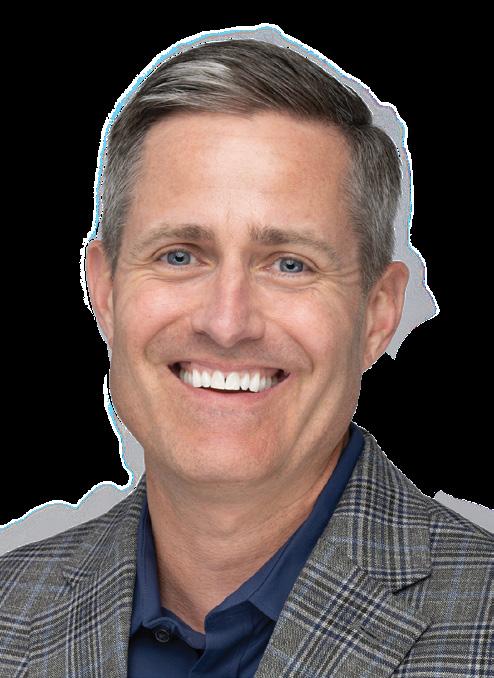

Matt Seitz Director, AI Hub for Business
In late November 2022, when many current WSB students were still in high school, ChatGPT launched. Since then, AI has begun affecting business, education, and society faster than any technology before it. While experts debate whether it will drive massive structural changes or be “just another major invention” like the PC or internet, the underlying technology continues to improve at a rapid clip. In this time of change, our stakeholders look to us for guidance on how to embrace AI for business.
We may not know the ultimate impact of AI in academia, but I’m confident WSB will meet this moment. Leaders throughout the school are stepping up to embed AI in their classrooms, research business implications, and partner with industry on practical applications. And they’re doing it with UW’s signature earnestness and commitment to excellence. Twenty-five years from now, WSB will be vastly different thanks to our leaders embracing today’s AI-fueled renaissance.
Visit business.wisc.edu/update/fall-2025 to read another student perspective on WSB at 150.

Student (BBA ’26) Marketing, Management and Human Resources
In 2050, I imagine the WSB will blend cutting-edge technology with a strong focus on human connection. The curriculum will likely be highly personalized, adapting to each student’s strengths and career goals, while also encouraging creativity and critical thinking. Students will use virtual reality and AI-powered simulations to experience real-world business challenges from anywhere in the world, making education more flexible and global.
At the same time, there will be an even greater emphasis on collaboration, emotional intelligence, and ethical leadership, because these qualities will be essential in a complex, fast-changing economy.
Beyond the classroom, WSB will continue to build a diverse and supportive community where students learn from each other’s perspectives and prepare to make a positive impact, developing the skills to directly influence the world around them.
Overall, I see the school balancing innovation and its core values to equip future leaders who are both tech-savvy and committed to using business as a force for good. ◀
In addition to recent updates, many Business Badgers shared their greatest accomplishments and proudest moments since graduating from WSB!
Jerald Hage (BBA ’55) published his 20th book, Solving the Crises of Capitalism and Democracy, which represents the culmination of his life’s work to create a more equitable society with a strengthened democracy.

Donald M. Vold (BBA ’56) retired in 1990 after a successful career at several companies, including Wisconsin Bell, Inc.; Ameritech; American Bell International; and more. He traveled the world, including a 4,300-mile drive from Iran to Germany. He attended the Northwest School of Wooden Boatbuilding and helped build a 56-foot schooner in Bayfield, Wisconsin.
Ron Peck (BBA ’63) used his WSB experience to foster a satisfying career after spending 20 years as a naval officer. Peck leveraged his cost accounting studies to manage multimilliondollar Navy procurement budgets and monitored cost and schedule positions of many programs within the defense industry.
Tim Eisele (BBA ’69, MS ’71) received the same degree as his late father, Karl A. Eisele Jr. (BBA ’46). His father attended the
School of Commerce, was captain of the UW cheerleading squad, and went on to work in advertising for Madison Newspapers, Inc. The younger Eisele is currently a freelance outdoor writer, raising awareness of the importance of natural resources.
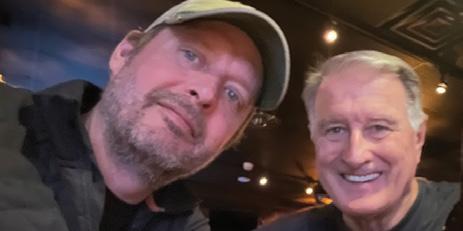
Thomas Edward Linnen (BBA ’69) says that his degree and love of cost accounting and computers led him to a career as a certified public accountant. He led three initial public offerings and also has many global travel memories, beginning with a solo trip to Asia in 1971 at 23 years old.
Gary Chaudoir (BBA ’70) moved to Aspen, Colorado, for his military obligation after graduating from UW–Madison. He was in the draft lottery, passed his physical, but ultimately was not called to service. He’s traveled to many international destinations and feels very blessed to be in his 47th year of teaching and creating stained glass art in Door County, Wisconsin.
Craig Laronge (BBA ’70) says his proudest achievement is funding a scholarship in memory of the late James A. Graaskamp (PhD ’65) Laronge says he was so fortunate to be in WSB’s outstanding real estate and urban land economics program. Reflecting on fond memories, GR8 4YRS is the inscription on his Union Terrace brick paver.
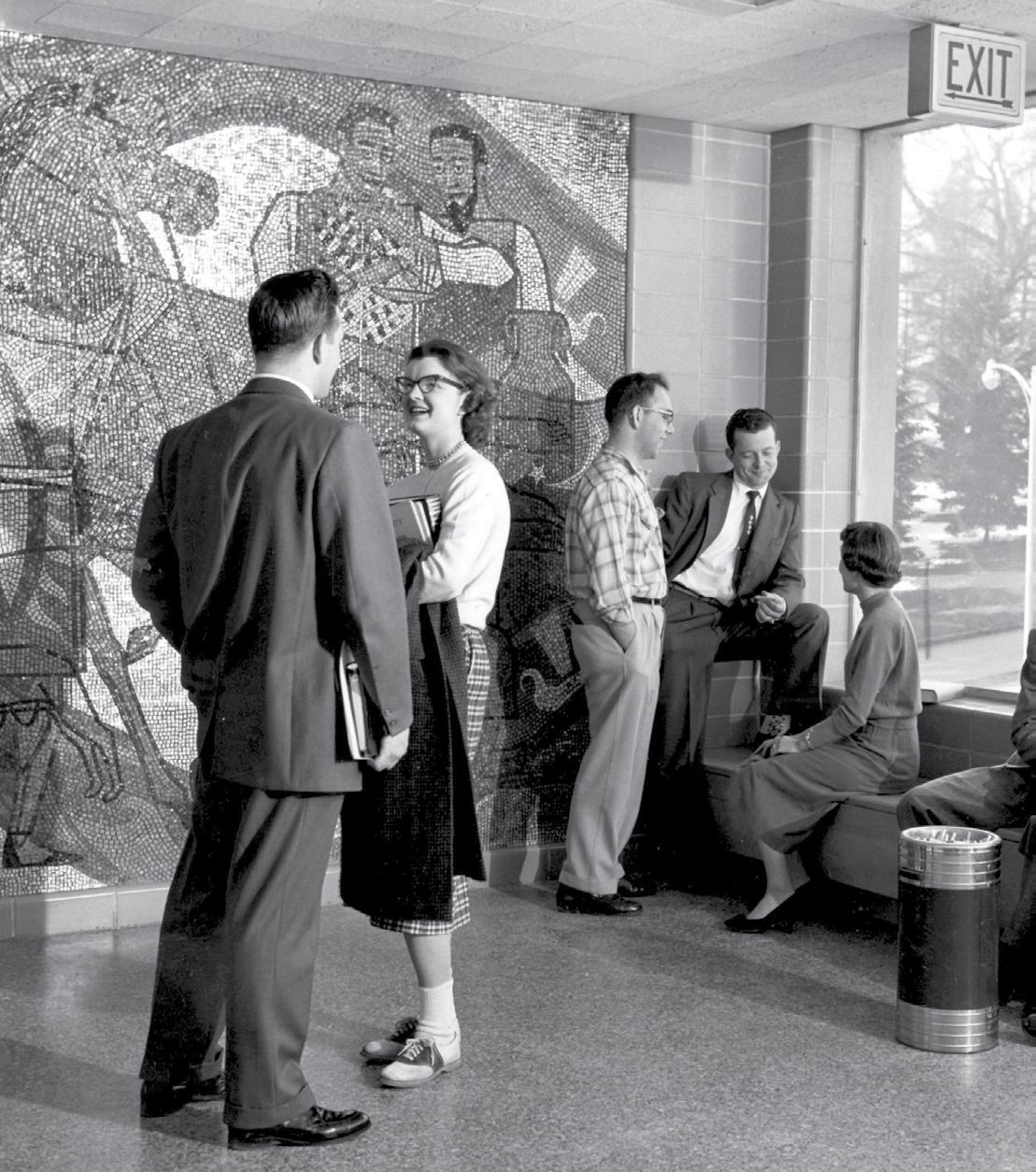

William Rauwerdink (BBA ’72) found time to complete his Sons of the American Revolution (SAR) application during the COVID-19 pandemic. As a Continental Army member, his fifth grandfather qualified him as a SAR member.

Stephen Jarchow (BBA ’74, MS ’76, JD ’76) has been a principal in over 100 real estate ventures and has written six books on real estate and finance, including Graaskamp on Real Estate. Jarchow has also produced over 150 motion pictures, and two of his films have won Academy Awards. He also provided housing and support during the January 2025 wildfires in Los Angeles when many of his colleagues were evacuated.

Chadwick Smith (MS ’75) went to law school after graduating from UW–Madison and has practiced Indian law for several decades. He was also principal chief of the Cherokee Nation from 1999 to 2011. Additionally, he released his third book, Cherokee Nation—Proceed Undaunted, which provides a history and commentary on the Cherokee Nation’s constitutions and governance.
Joe Fahey (BBA ’76, MBA ’80) published his book, Global Entries: Anecdotes From My Travels Abroad, which is about his adventures in international travel. The stories, which detail both business and personal travel over five decades, describe his “thrills, chills, and spills” as he navigates the globe.







WITH US


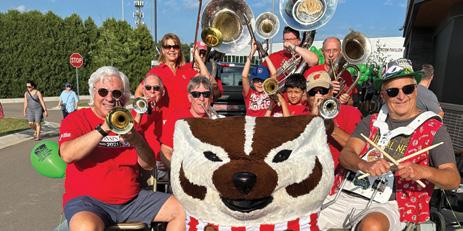
George Patterson (BBA ’76) is celebrating a 49-year career in the Wisconsin insurance industry. He’s held positions at many companies, including Crum & Forster Insurance and CNA Insurance. He’s currently a partner and vice president at Robertson Ryan. He plays the drums and continues to participate in UW Marching Band alumni events.

Gerald Widen (MBA ’78) joined Rockwell International in 1978, where he worked until his retirement in 2012. He held financial leadership positions and several corporate staff assignments until he reached corporate VP of strategic and financial planning. Widen returned to Madison in 2022 and enjoys an active retirement, which includes season tickets for the Wisconsin Badgers football team.
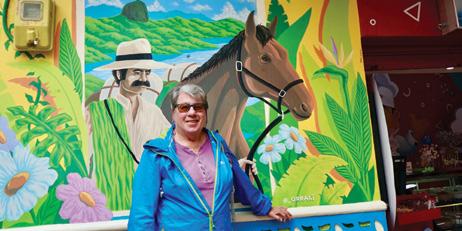
Carole Katz (MS ’79) spent 22 years in various subsidiaries and spinoffs of
intelligence before retiring in 2000. Katz also started The World Is Our Classroom during her teaching career, an initiative that’s escorted more than 125 students overseas.
Connie Oak Patton (BBA ’79) says that WSB prepared her to work for clients in Fortune 1000 companies, Big Eight accounting/consulting firms, national practice groups, and various entrepreneurial endeavors. Thanks to her WSB education, she was conversant in any business specialty that confronted her in various decision-making capacities. She says that WSB offered a rigorous curriculum and a glass-ceiling-breaking adventure!

Brian Hale (BBA ’81, MBA ’87) says that a WSB class led by the late Alan Filley led to his career as a product manager with Target, Limited Brands, and Macy’s.

John Cato (BBA ’83) took extensive sabbaticals to Australia and Europe after he left Madison. He also volunteered with his youngest son to build a home for an impoverished family in Mexico. During his career journey, Cato worked in sales at Maytag in Texas, pursued an acting career in Los Angeles, and now hosts his own show on YouTube called That’s Classic!

Juan Marcos (MS ’84) had a successful career as a human resources professional, retiring as chief people officer and senior VP of HR from the iconic McDonald’s Corp. Marcos says his greatest professional privilege was being asked to author The Last Corpsman, a book about a World War II veteran and prisoner of war in the Pacific.
A business class taught by Robert Haugen in 1985 is recorded in an early experiment with using video to bring business education to a wider audience.
Correction: In the Spring/Summer 2025 issue of Update, David W. Grainger’s name was incorrectly printed as David W. Grainger III.
More Class





Karl Kramer (BBA ’85) embarked on a formation journey for Spiral Arts, a nonprofit organization in Riosucio, Colombia. Alongside artist Carlos Delgado, Kramer created Spiral Arts for cultural repatriation of the indigenous Colombian people in this rural area. The organization offers free workshops and helps discover numerous prodigious artists who build economic certainty for themselves, their families, and their communities.
Continued on next page


Steve Hasbrook (BBA ’86) has completed his second year as a philanthropic advisor for the Wisconsin School of Business and has been president of the Porcupine Foundation for the past 24 years, where he’s honoring Shane Hasbrook’s memory. Hasbrook celebrated his 35th wedding anniversary with fellow Badger Kristin Hasbrook (BS ’88) and is happy to say that all his children are proud Badgers as well!
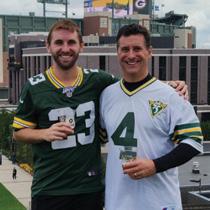
David Balistreri (BBA ’88) can’t believe he’s approaching 37 years since he graduated from WSB. Balistreri thinks it’s funny that he ended up working in recruiting, something he never thought about when he was in school. He’s owned his own agency, Select Technical Staffing, for 28 years, and is already starting his semi-retirement.

Beverly Semmann (BBA ’91) is excited to celebrate Rowe Pottery’s 50th year of manufacturing and selling handcrafted pottery in Wisconsin. The business’ owner since 2013, Semmann says that it’s amazing to see the brand grow and thrive after years of struggling financially. Rowe Pottery is recognized as an American tradition of handcrafted quality that withstands the test of time.

Dana R. Hermanson (PhD ’93) is Dinos Eminent Scholar Chair of Private Enterprise and a professor of accounting at Kennesaw State University. He was named a 2025 American Accounting Association (AAA) Presidential Scholar and delivered a lecture at the AAA annual meeting in August 2025 titled, “Expanding Our Insights, Audiences, and Impact.” Hermanson has over 500 publications, which include over 70 letters to the editor in The Wall Street Journal

Brigitte Jagemann (BBA ’93) played on the women’s golf team at UW–Madison and was an Academic All-Big Ten honoree. Jagemann also joined LPGA Amateurs in Madison a few years ago after moving back to Wisconsin. She says that volunteering for events and on the organization’s board has been a rewarding and fun way to meet new people, while also helping others.

Renee Brantner Shanesy (MBA ’98) says that her proudest career moment so far has been opening the doors to the Midwest’s first luxury dog resort, Ruffin’ It, which includes services for high-end dog day care, hoteling, retail, and training. Brantner Shanesy was a pioneer in the pet resort industry when the ground was broken in 2005 for her business. The resort




@wisconsinschoolofbusiness @UWBusiness

was featured in The New York Times and CNN, and exemplifies its tagline: Where dogs’ dreams come true.

Janet Dell (BBA ’98) says that the University of Wisconsin–Madison and the Wisconsin School of Business created career opportunities and introduced her to a powerful network of alumni. Her first job was the result of a friend and classmate, Emmett McCann (BBA ’97). Since then, she’s gained experience in three industries and taken advantage of countless professional development opportunities. She says there’s no better icebreaker in the world than mentioning her alma mater.

Eugenio Caldentey (MBA ’99) has led logistics consulting projects across Latin America since graduating from WSB and recently launched a platform that combines supply chain insights with data science. One of his proudest moments was a road trip through Patagonia with his kids, which was full of glaciers, gravel, and lifelong memories. He’s proud to be part of WSB’s 125-year legacy and looks forward to many more years to come!
Chad Sorenson (BS ’99, MS ’01, MBA ’02) has started three companies since graduating from WSB. His current company, SunPeak, implements solar systems for businesses. Sorenson remains active with the UW–Madison community by serving on the Wisconsin Applied Ventures in Entrepreneurship board. He and his wife, Tanya—who owns and runs the Madison restaurant RED— live in Pleasant Springs, Wisconsin, with their 2-year-old son, Denver.
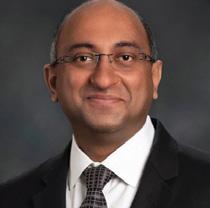
Quraish Baldiwala (MBA, MS ’02) says the skills he learned from his WSB education have helped craft his career working in health care and delivering products to those who most need them around the world. Some of his accomplishments include establishing an in-country supply chain that won the Shingo Prize and leading the development of 100% recyclable packaging to help rural communities in South Asia.
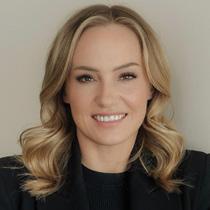
Katie McCarty (BBA ’06, MAcc ’07) is the executive director of the Cornerstone Foundation of Northeast Wisconsin Inc. and administrator of K.C. Stock Foundation Inc., where she oversees $60 million in assets. With diverse experience in public accounting, treasury, and business ownership, she excels in financial strategy and leadership. She says that UW–Madison shaped her career, providing the skills and network to succeed. Go Badgers!

Ed Paradowski (MBA ’06) says that his experience in WSB’s executive MBA program was life changing, noting that the career success he’s achieved is a direct result of the program. He says that the international studies trip to China was a tremendous experience for the entire Class of 2006!
More Class Notes are featured in the digital issue at business.wisc.edu/ update/fall-2025




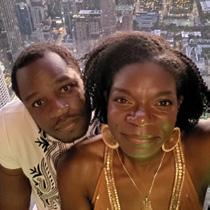
Jennifer Knox (BBA ’07) made a cross-country move to Denver, where she met the love of her life, after living in Washington, D.C., for 15 years. In 2025, they got married and traveled to Japan to ski and snowboard. Knox has been the national director of organizing and tech innovation for the Working Families Party for five years. She is looking forward to organizing a movement that puts governing power in the hands of working people across the U.S.





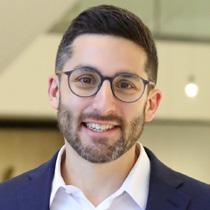
Seth Wooll (BBA ’10, MAcc ’11) is now the client solutions director of Brillect, a Midwest-based consulting and advisory firm. In this role, Wooll leverages his extensive finance and accounting experience—along with a collaborative, strategic approach— to help clients navigate complex challenges and drive practical, results-driven outcomes.

Andrew “Drew” Maxfield (MBA ’12) has lived at the intersection of arts and business since studying at WSB’s Bolz Center for Arts Administration. As a composer, his work has been commissioned and performed by groups ranging from the Utah Symphony to The

Gesualdo Six. He returned to Madison in September 2025 to see the Madison Symphony Orchestra perform his music. Maxfield also lectured for the Bolz Center’s arts entrepreneurship seminars during his visit.
Ping Ren (MS ’12) says that the Wisconsin School of Business has some of the best professors and lecturers. Ren says that his graduate program equipped him with the academic knowledge and practical skills for industry jobs through coursework and networking with professors, lecturers, and classmates. Additionally, he says that WSB’s alumni connections also helped him during his search for an internship.
Abbe Klein (BBA ’13) says that her marketing degree from WSB gave her the confidence to build her own brand and create a handpoured candle company, Black Pearl Candles. She says that being a business owner is the most fun, challenging, and rewarding career she could imagine.

Incoming MBA students kick off their curriculum with an ethics session in the new collaborative learning classrooms in August 2015.
Cassie Warton (BBA ’19) says that one of her favorite ways to stay connected to WSB is through the Grainger Center for Supply Chain Management Alumni Advisory Board. Warton says that the experience has been incredibly rewarding and has allowed her to connect with both undergraduate and graduate students, provide guidance, and offer recruiting opportunities. ◀
1900
That’s 59,003 unique paths taken, success stories written, dreams achieved, and lasting contributions made to a legacy that’s 125 years strong. However you want to put it into words, it’s a number made possible by Business Badgers like yourself. Thank you for being part of this amazing community, and On, Wisconsin!








